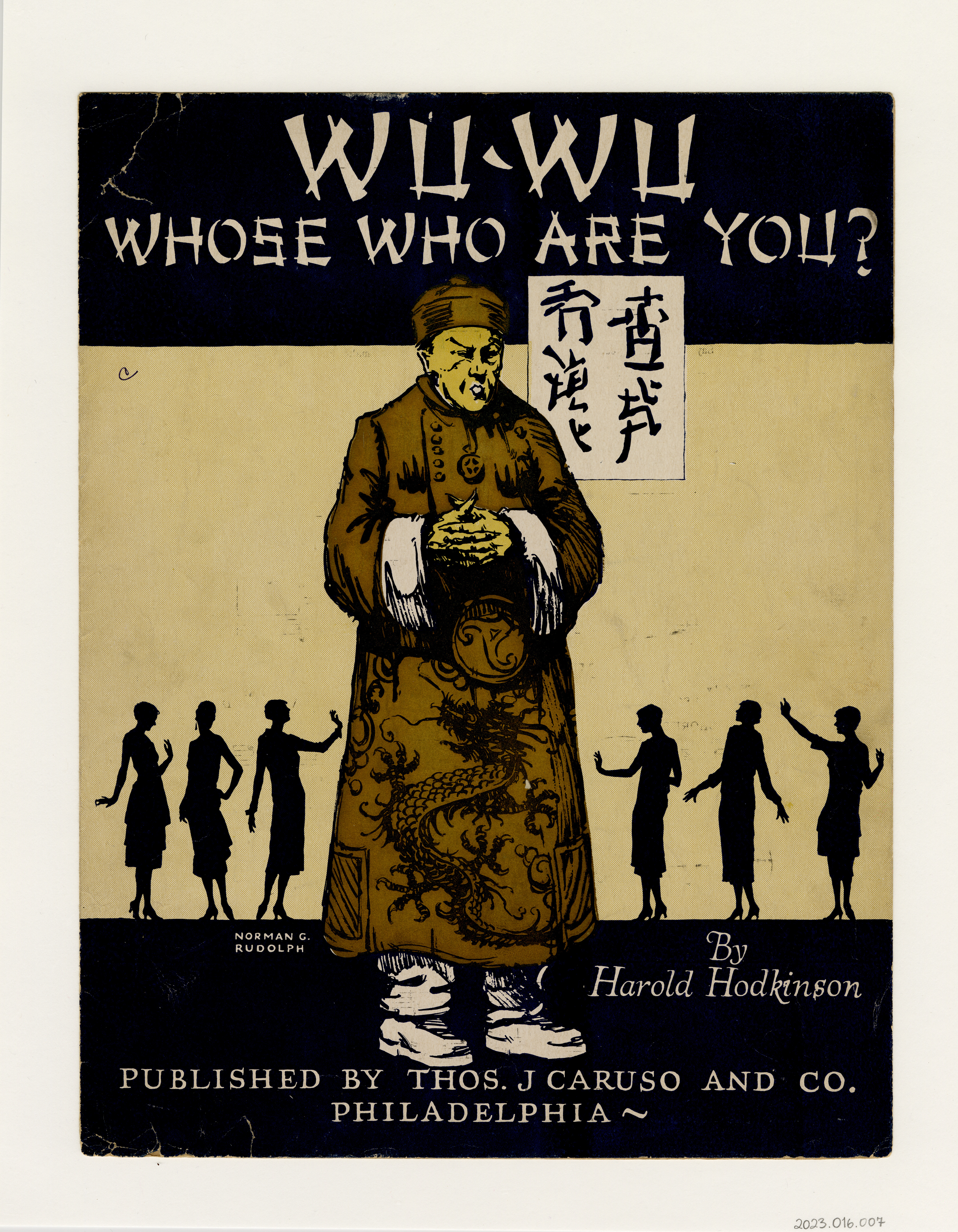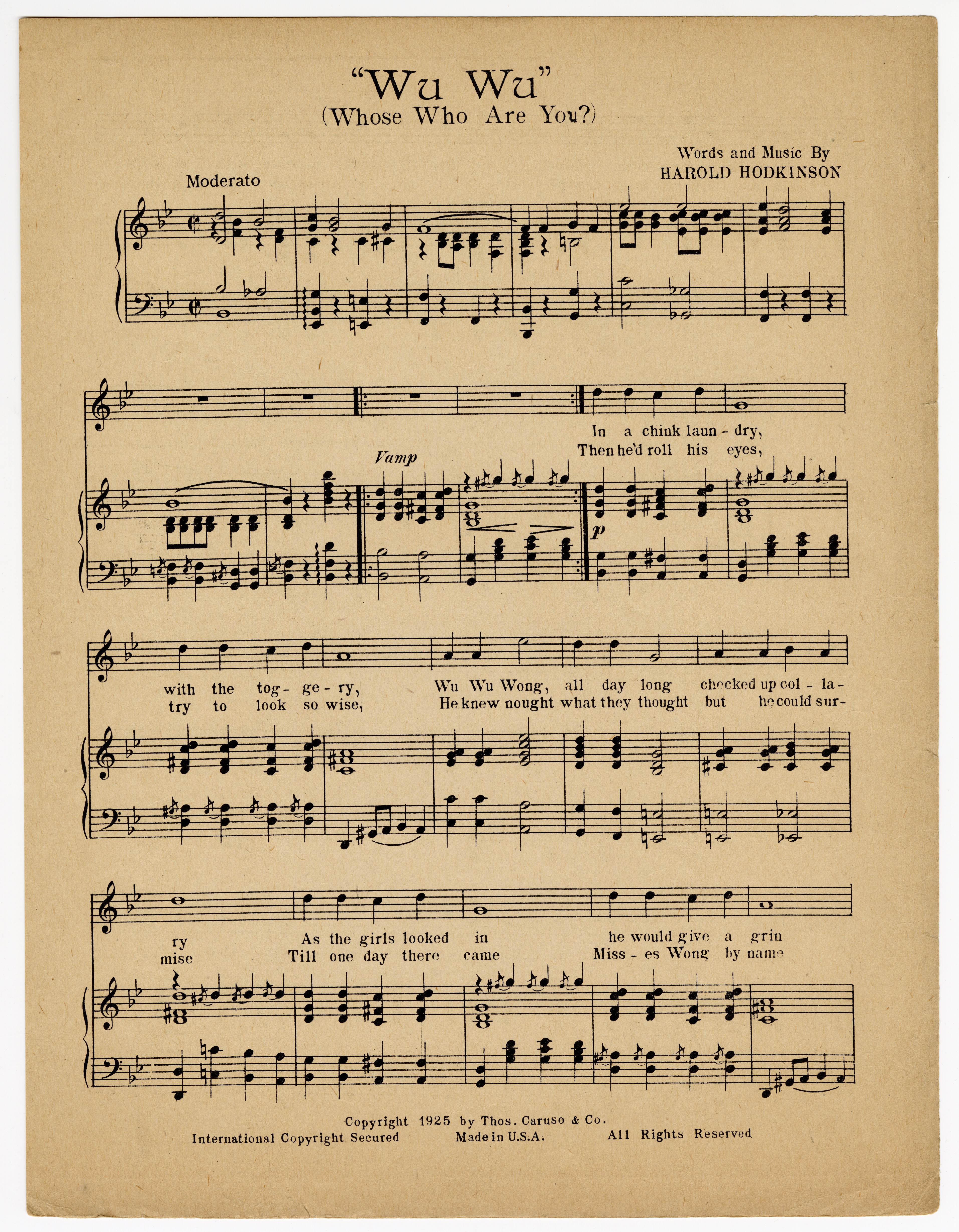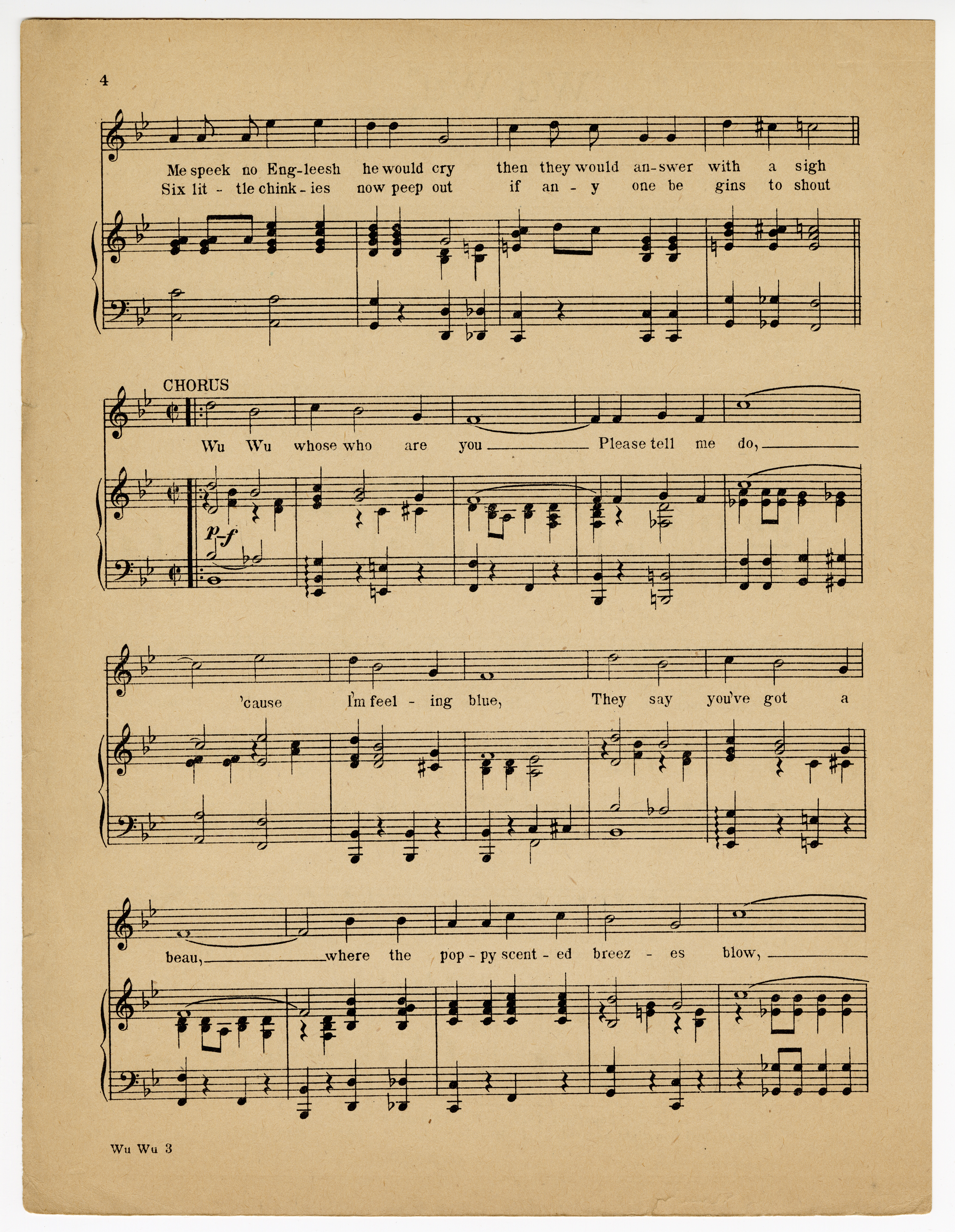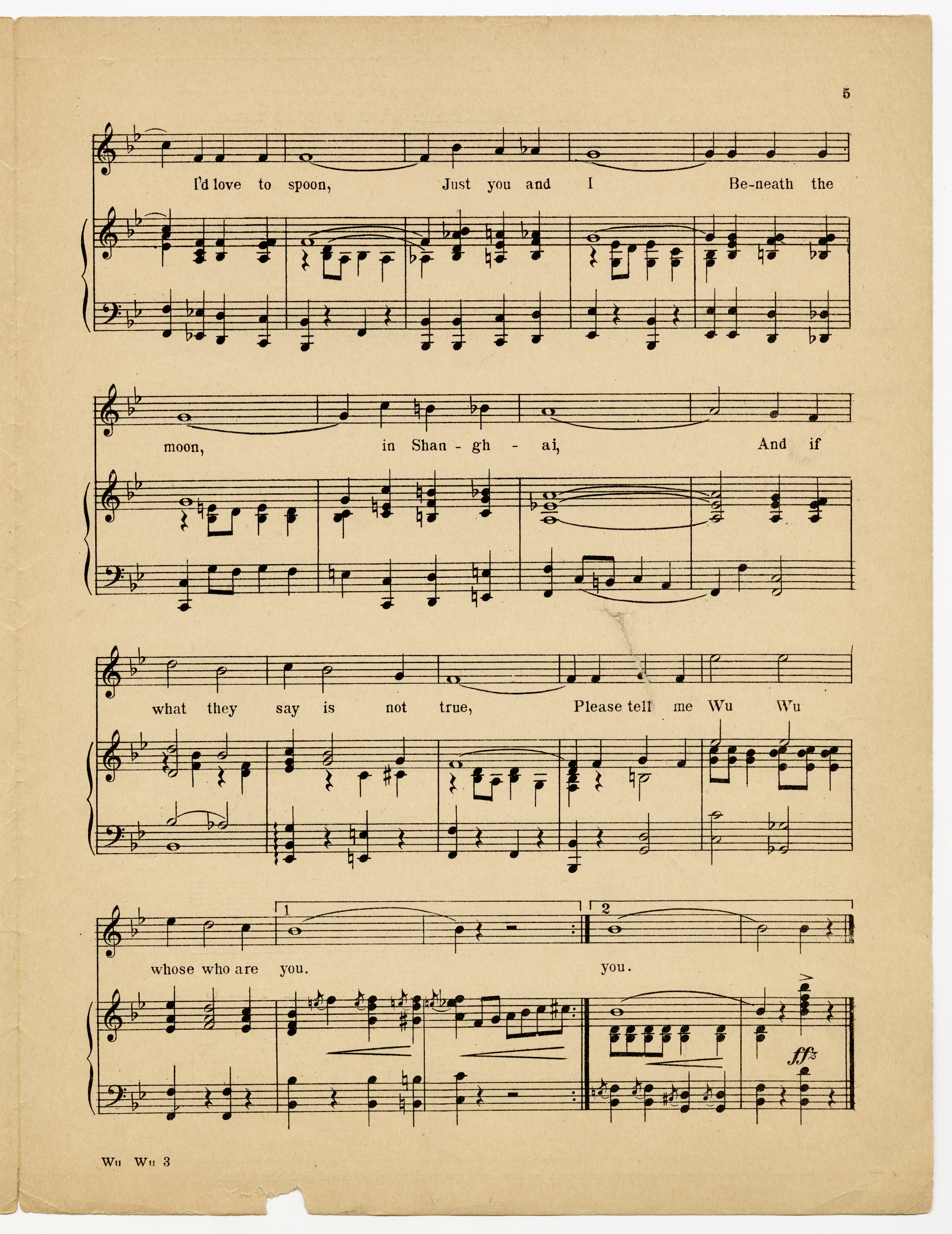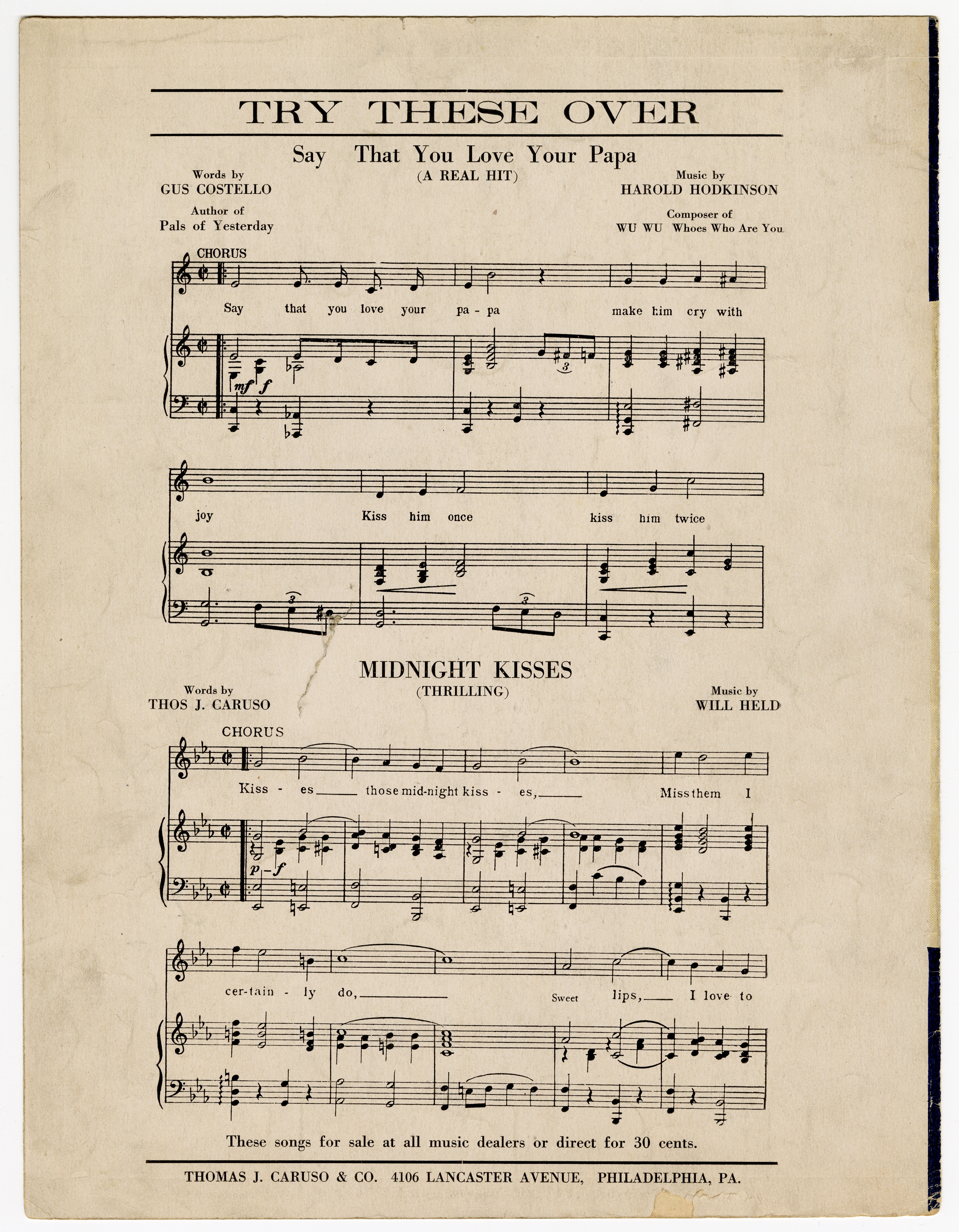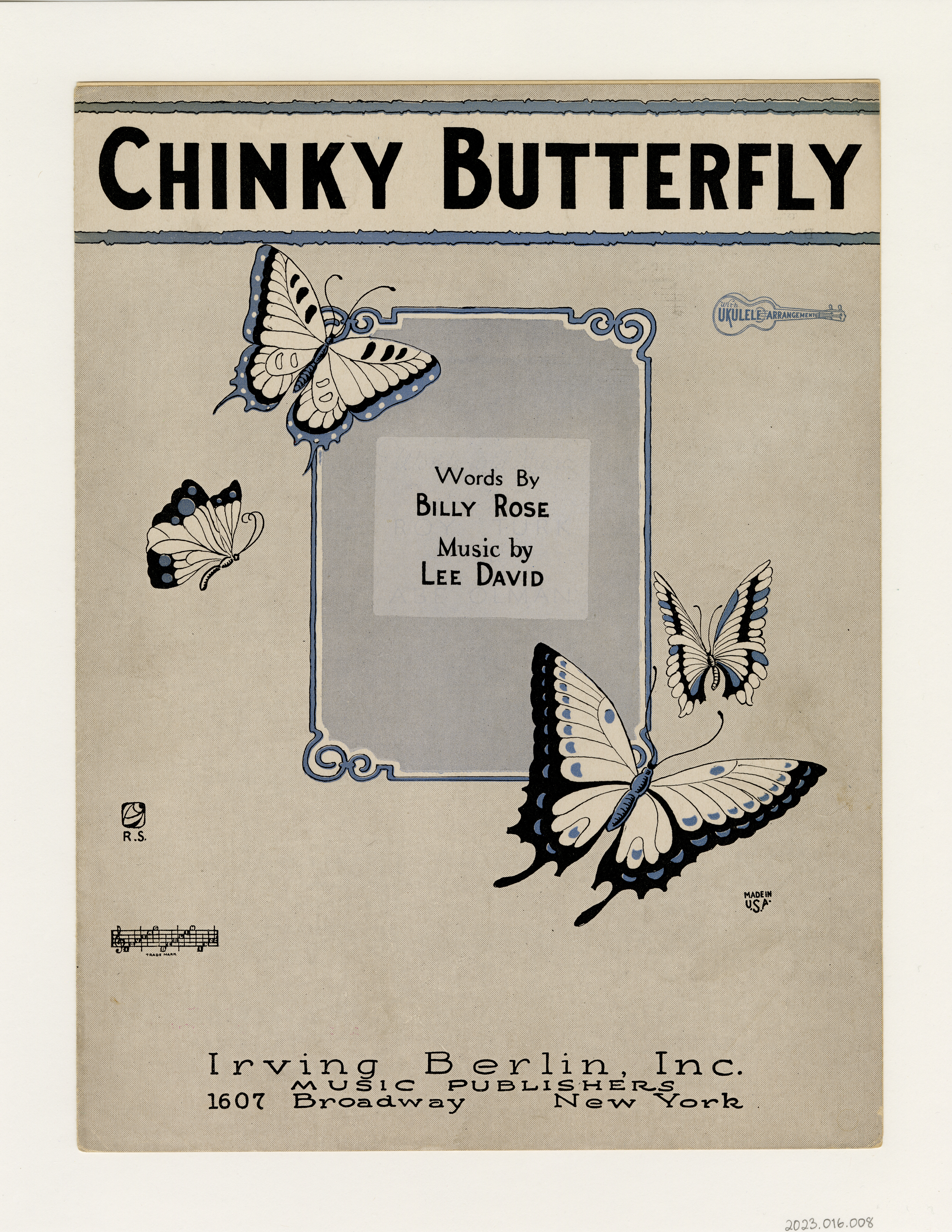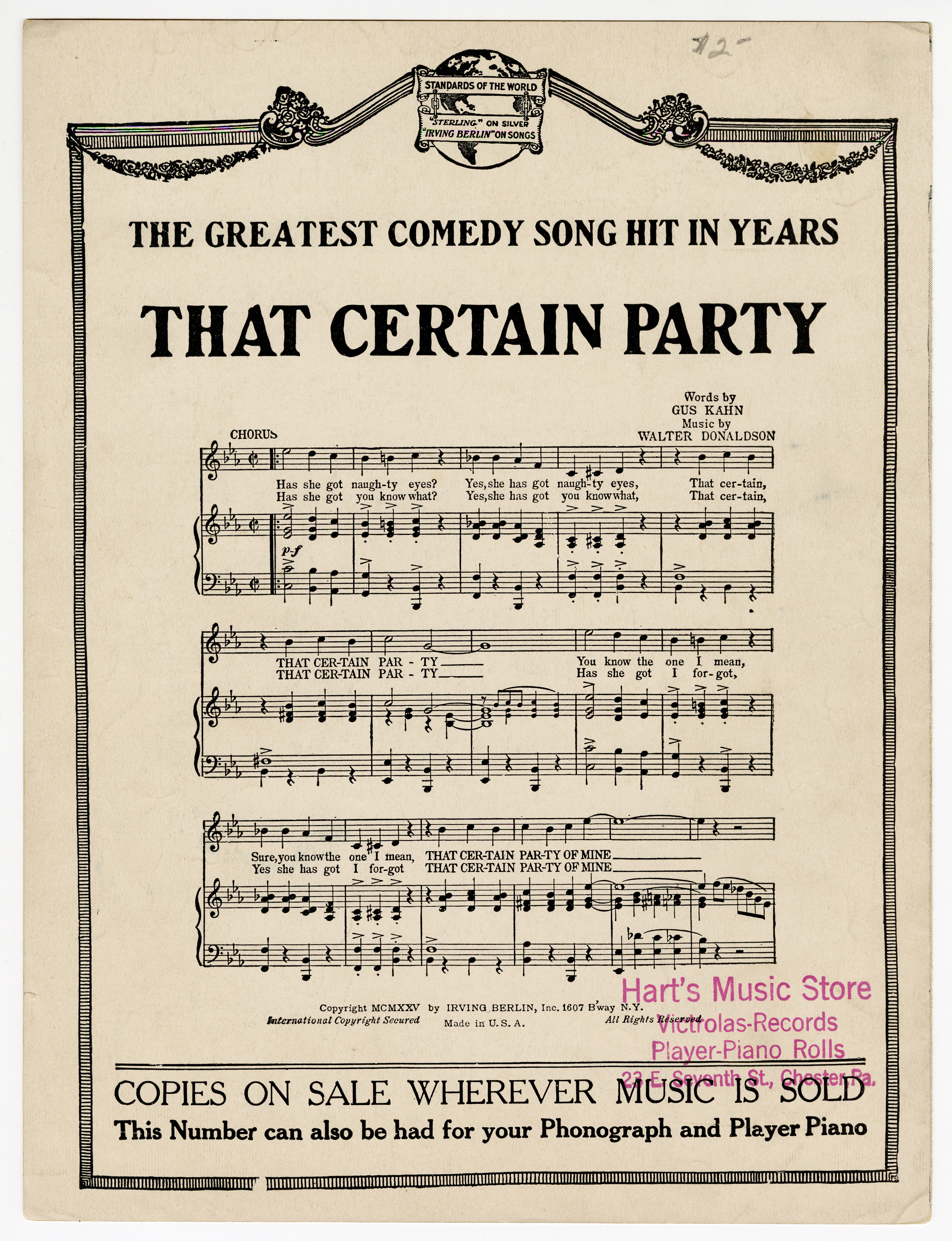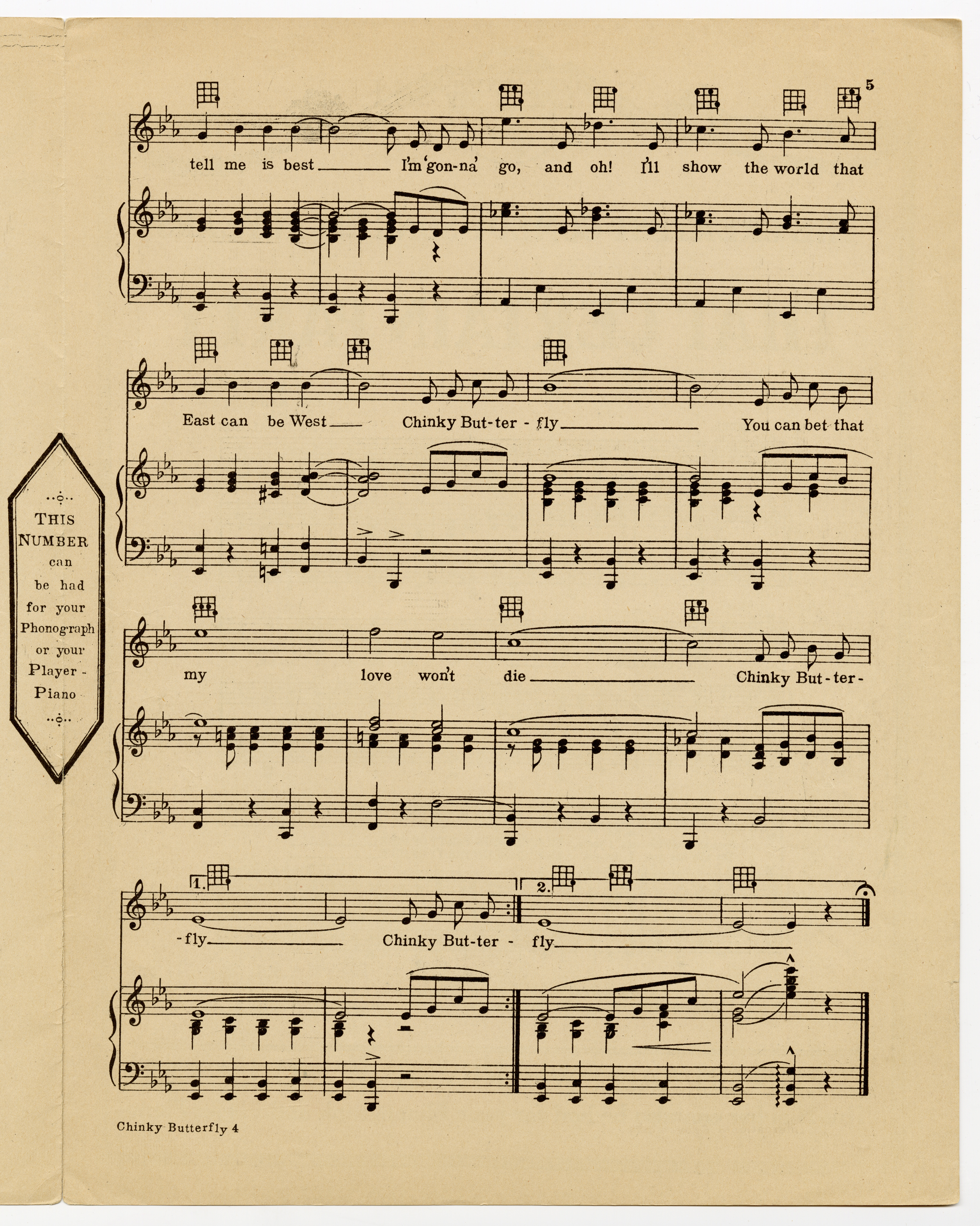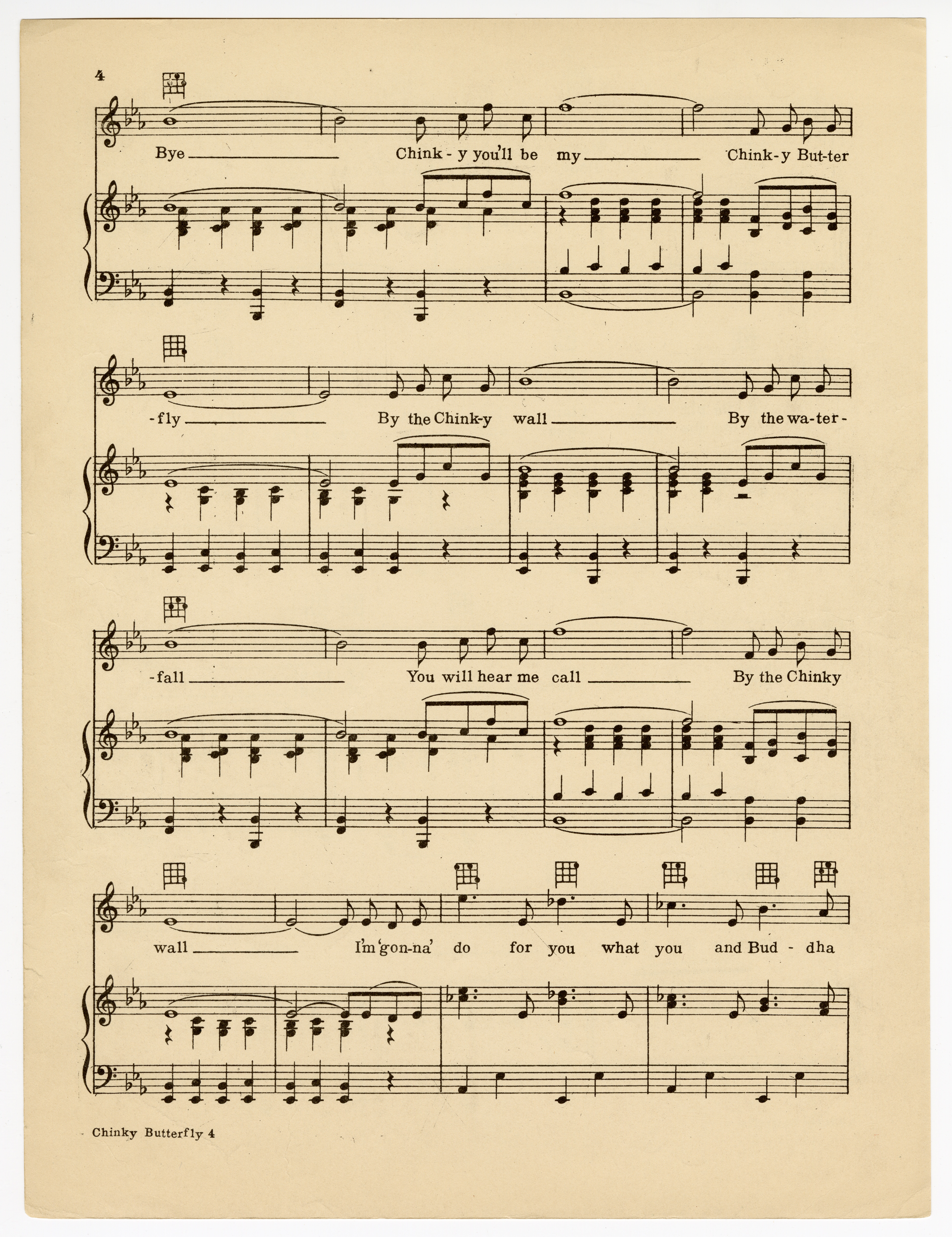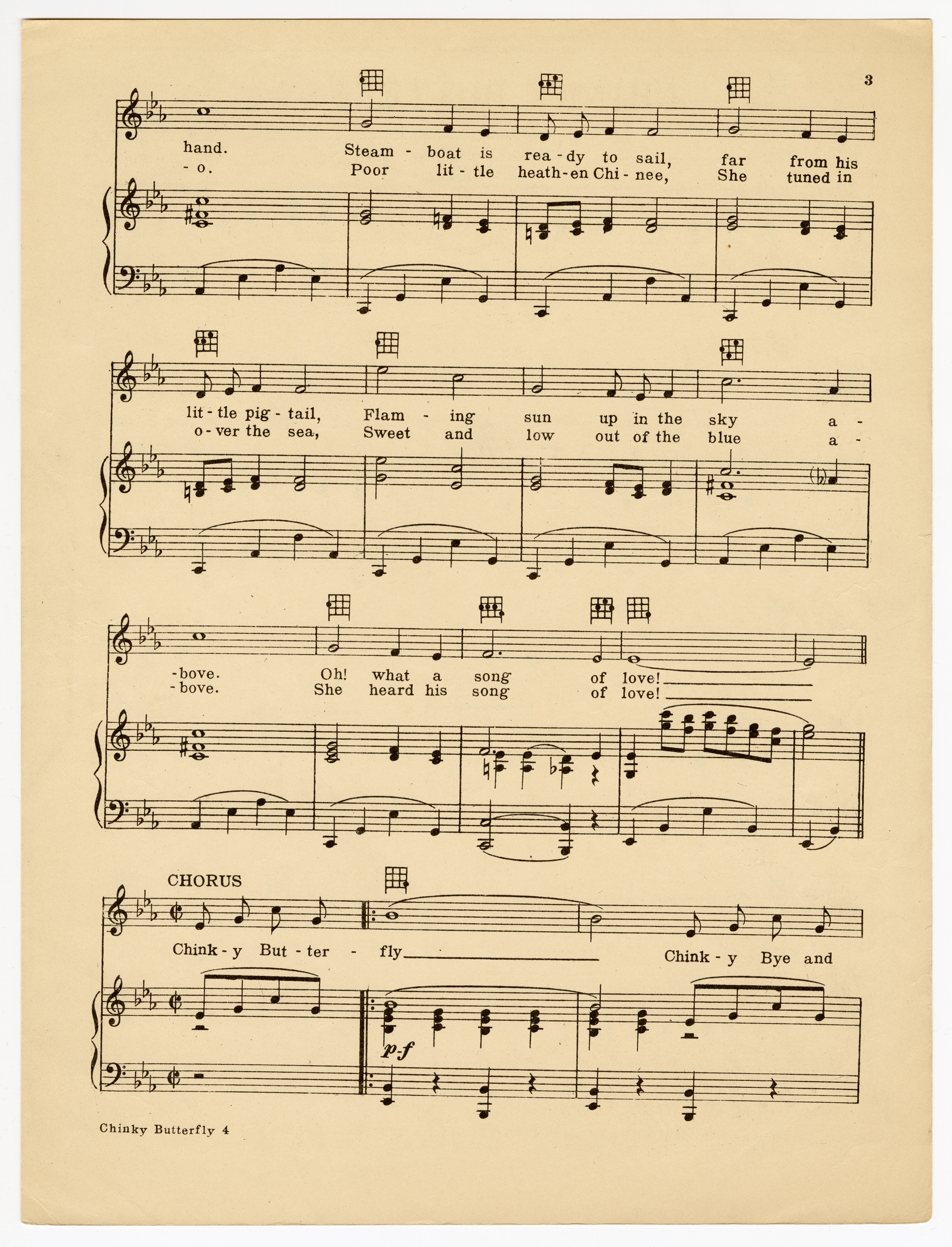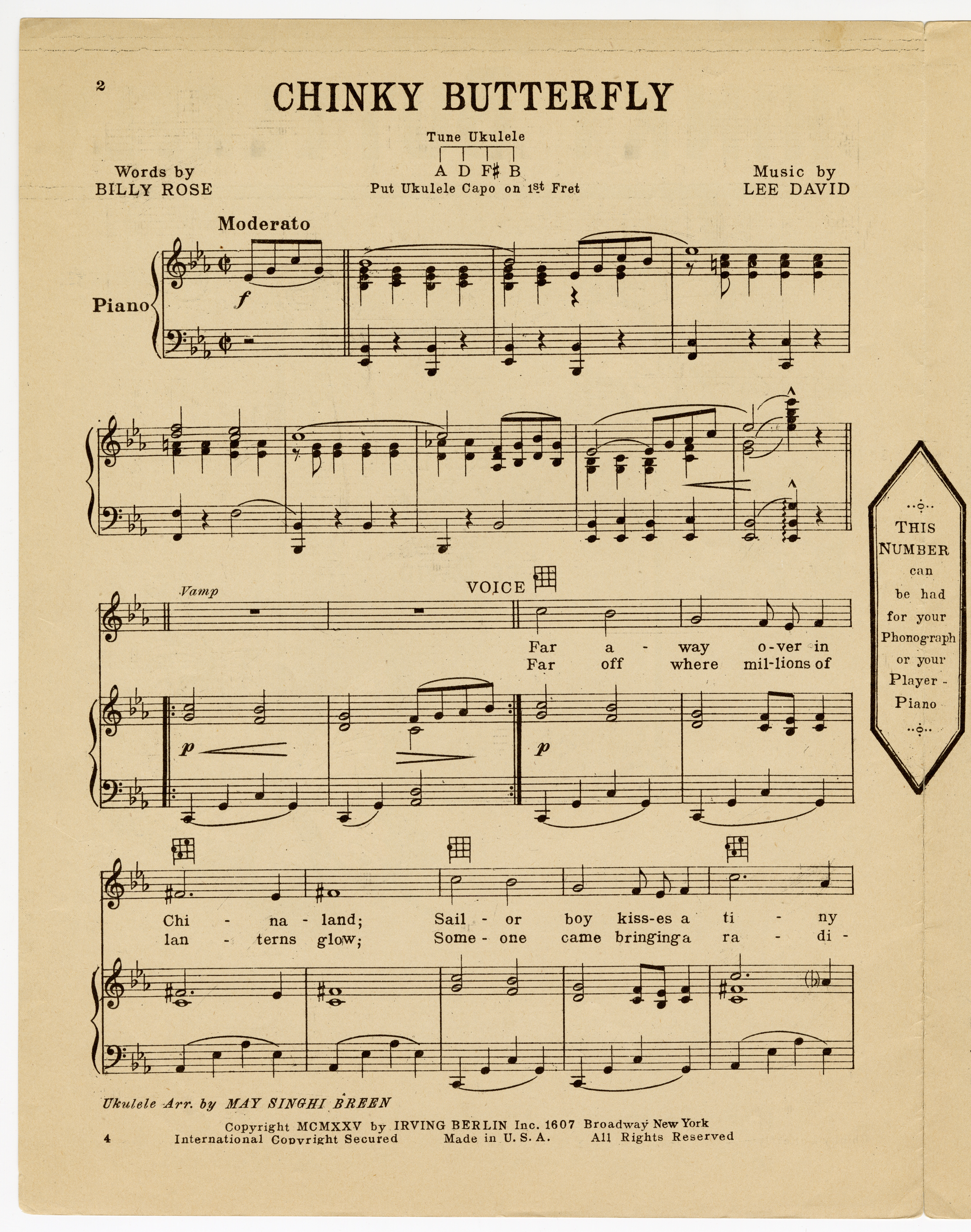Collections馆藏Collections馆藏Collections馆藏Collections馆藏Collections馆藏Collections馆藏Collections馆藏Collections馆藏Collections馆藏Collections馆藏Collections馆藏Collections馆藏Collections馆藏Collections馆藏Collections馆藏Collections馆藏Collections馆藏Collections馆藏Collections馆藏Collections馆藏Collections馆藏Collections馆藏Collections馆藏Collections馆藏Collections馆藏Collections馆藏Collections馆藏Collections馆藏Collections馆藏Collections馆藏Collections馆藏Collections馆藏Collections馆藏Collections馆藏Collections馆藏Collections馆藏Collections馆藏Collections馆藏Collections馆藏Collections馆藏Collections馆藏Collections馆藏Collections馆藏Collections馆藏Collections馆藏Collections馆藏Collections馆藏Collections馆藏Collections馆藏Collections馆藏Collections馆藏Collections馆藏Collections馆藏Collections馆藏Collections馆藏Collections馆藏Collections馆藏Collections馆藏Collections馆藏Collections馆藏Collections馆藏Collections馆藏Collections馆藏Collections馆藏
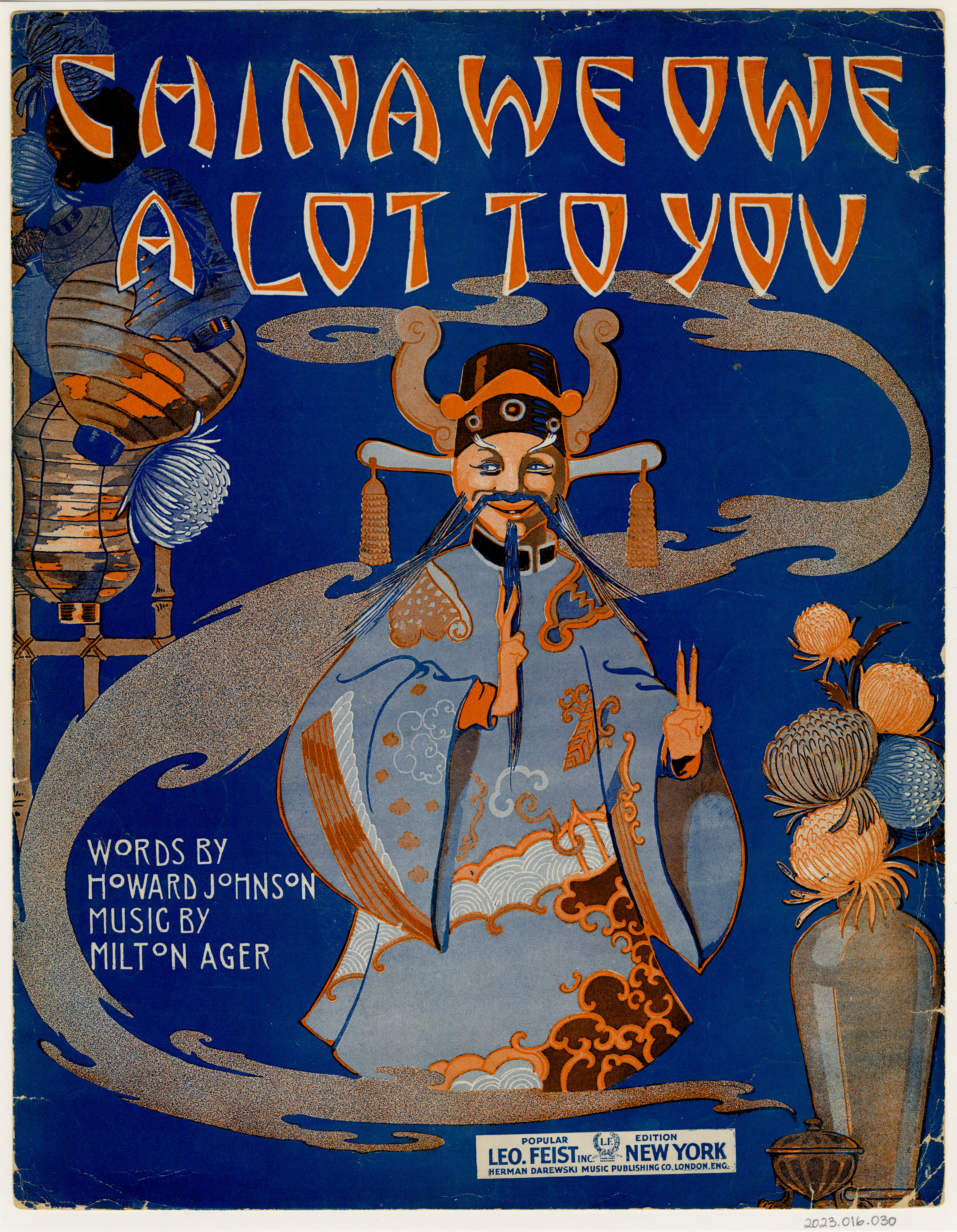
Music Sheet “China we owe a lot to you.” Courtesy of Sam Kohl, Museum of Chinese in America (MOCA) Collection.
This week we are continuing to highlight Sam Kohl’s extensive collection of Chinese-themed paper materials with his donation of sheet music books that feature a similar style of tasteless representation of Asian culture but are now paired with unsavory lyrics and song titles.
The music books measure between 7.5-10.5 inches wide and 11.5-13.5 inches long with most covers featuring full-color artwork and black and white photographs. Similar to the postcard collection, there is an overarching Chinese theme to the lyrics and artwork with some Japanese representations thrown in the mix; often with a lack of distinction between the two cultures.
While some of the books in this collection have a more positive tone and an appreciation for Chinese culture, the majority incorporate the Chinese for comedic effect and mockery. Common phrases that appear in these music books include terms often associated with racist caricatures of the Chinese, words such as “Ching”, “Chinky”, and “Chinee” make frequent appearances in lyrics as a way to mock and mimic the Chinese person. Examples of names for the Chinese characters include “Chong from Hong Kong”, “Ching Ching Foo”, and “Ching-a-Ling”, none of which are very inspired or original to anyone familiar with racist Chinese characters often represented in dated US media.
A Columbia recording of “Chong, He Come From Hong Kong” is available, featuring the singer performing with a stereotypical Chinese intonation.
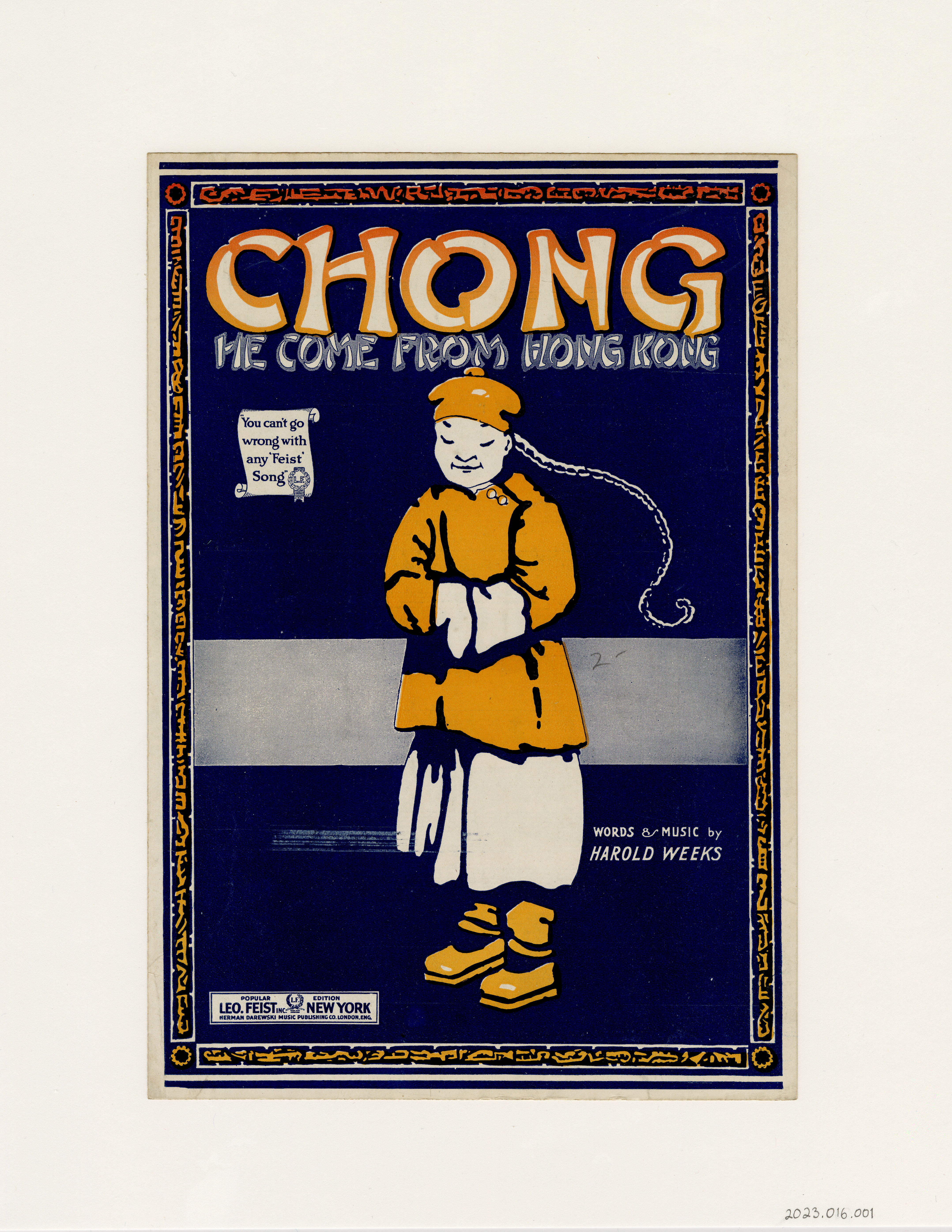
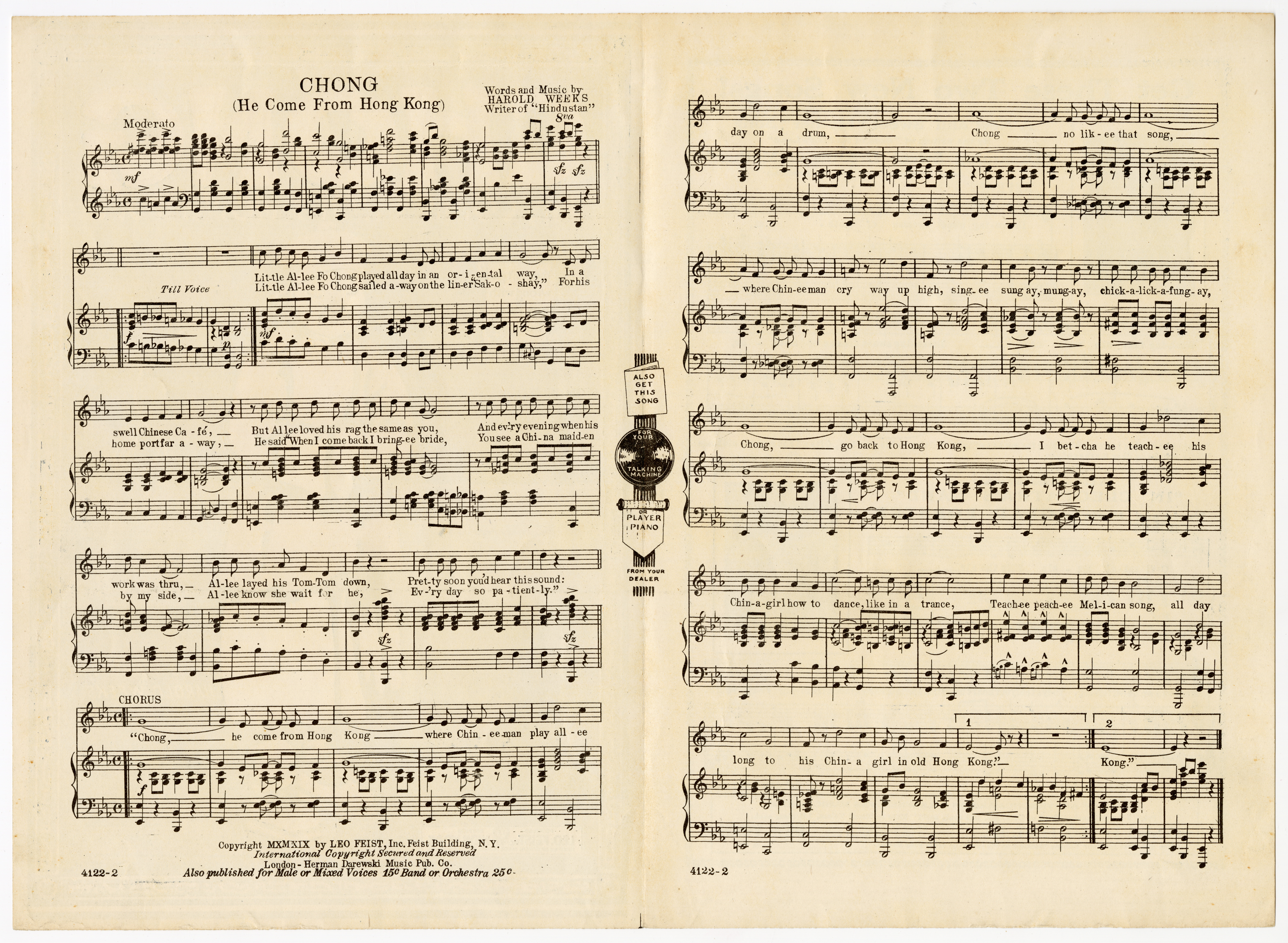
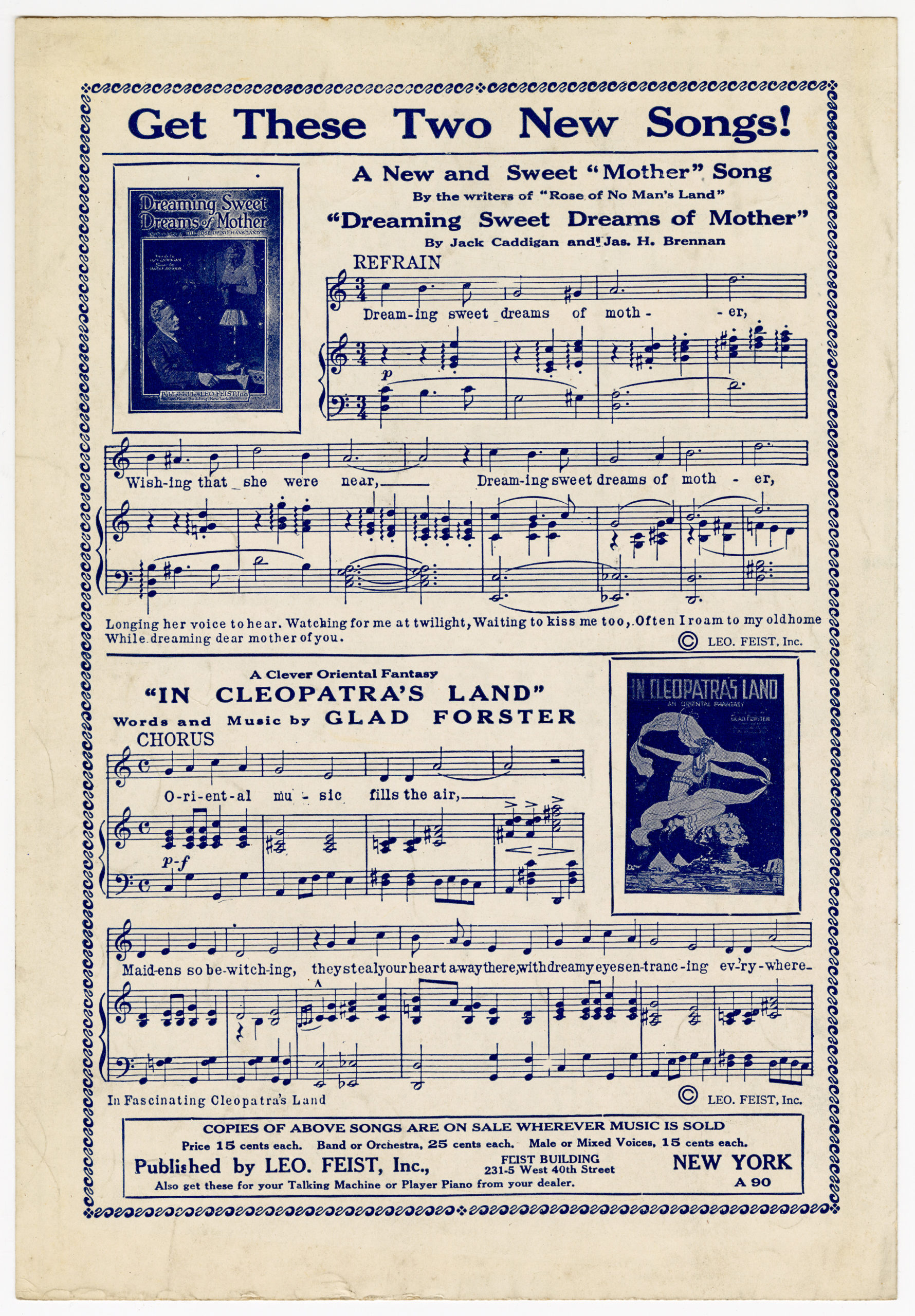
Courtesy of Sam Kohl, Museum of Chinese in America (MOCA) Collection.
“Ching A Ling’s Jazz Bazaar”, we so happen to have found a recording of this song being performed in 1920s. Featuring an interlude in the middle of the song mocking the Chinese.
Ching A Ling’s Jazz Bazaar
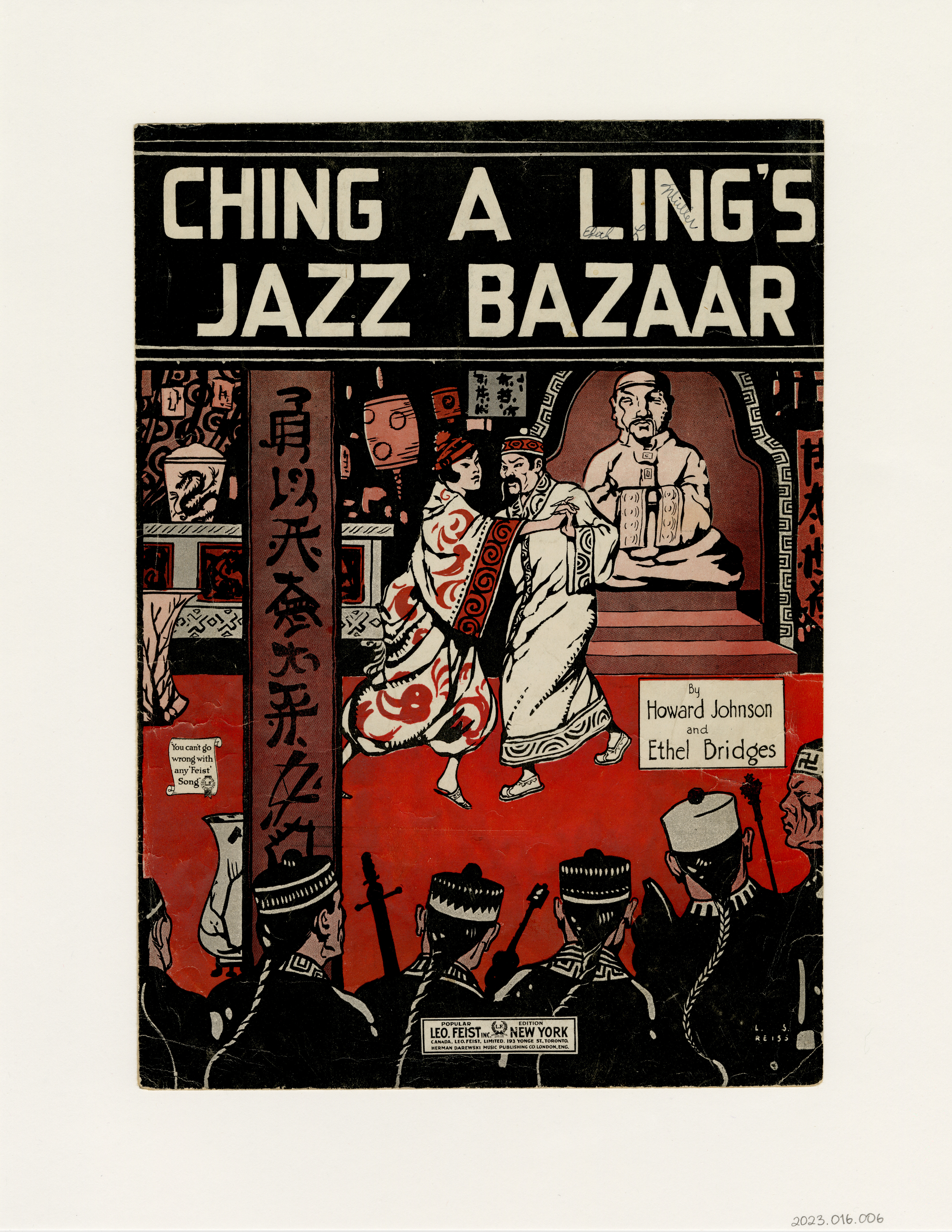
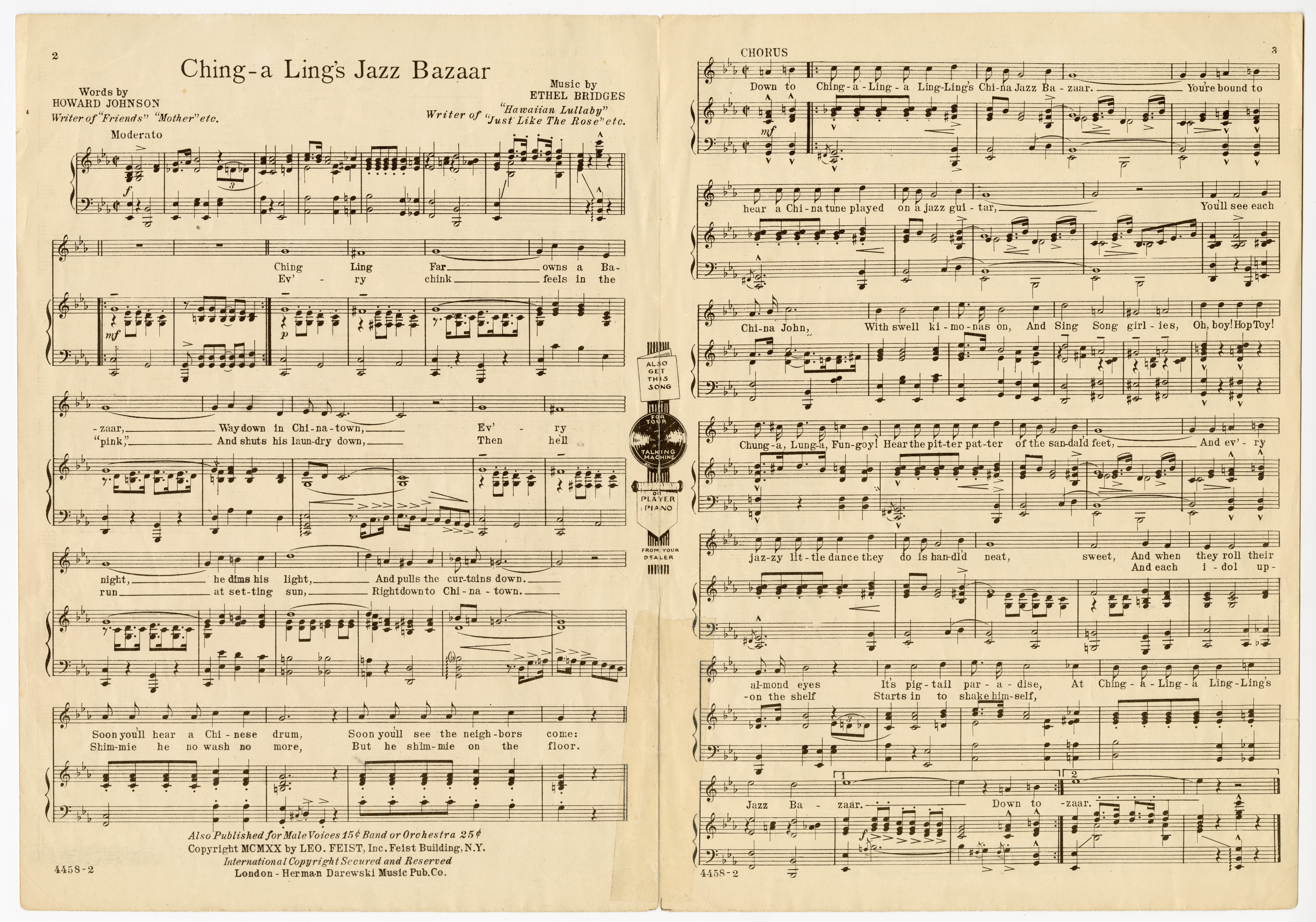
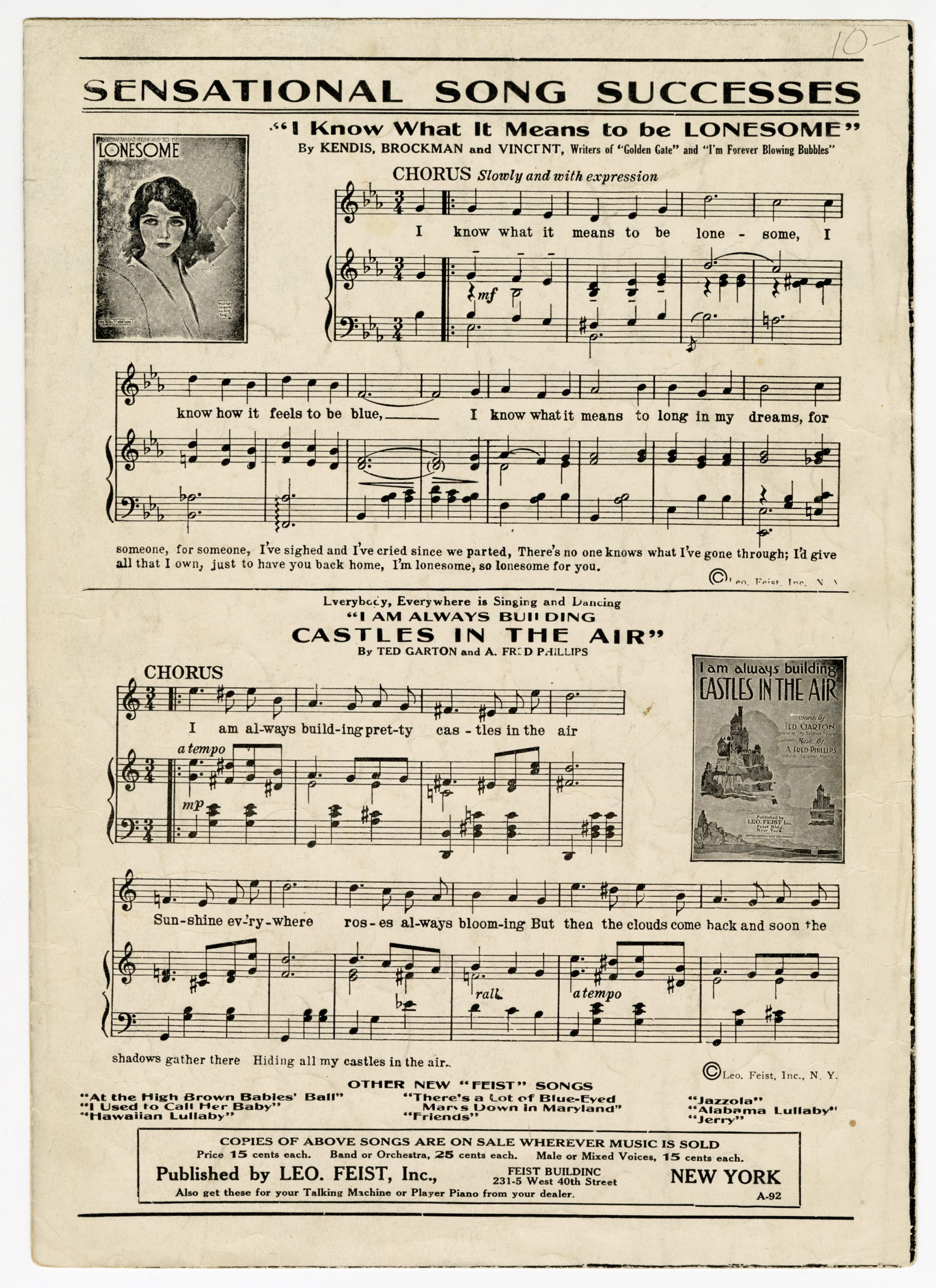
Courtesy of Sam Kohl, Museum of Chinese in America (MOCA) Collection.
Another one with a recording available, the song itself is not too bad…until the end.
The Rickety Rickshaw Man
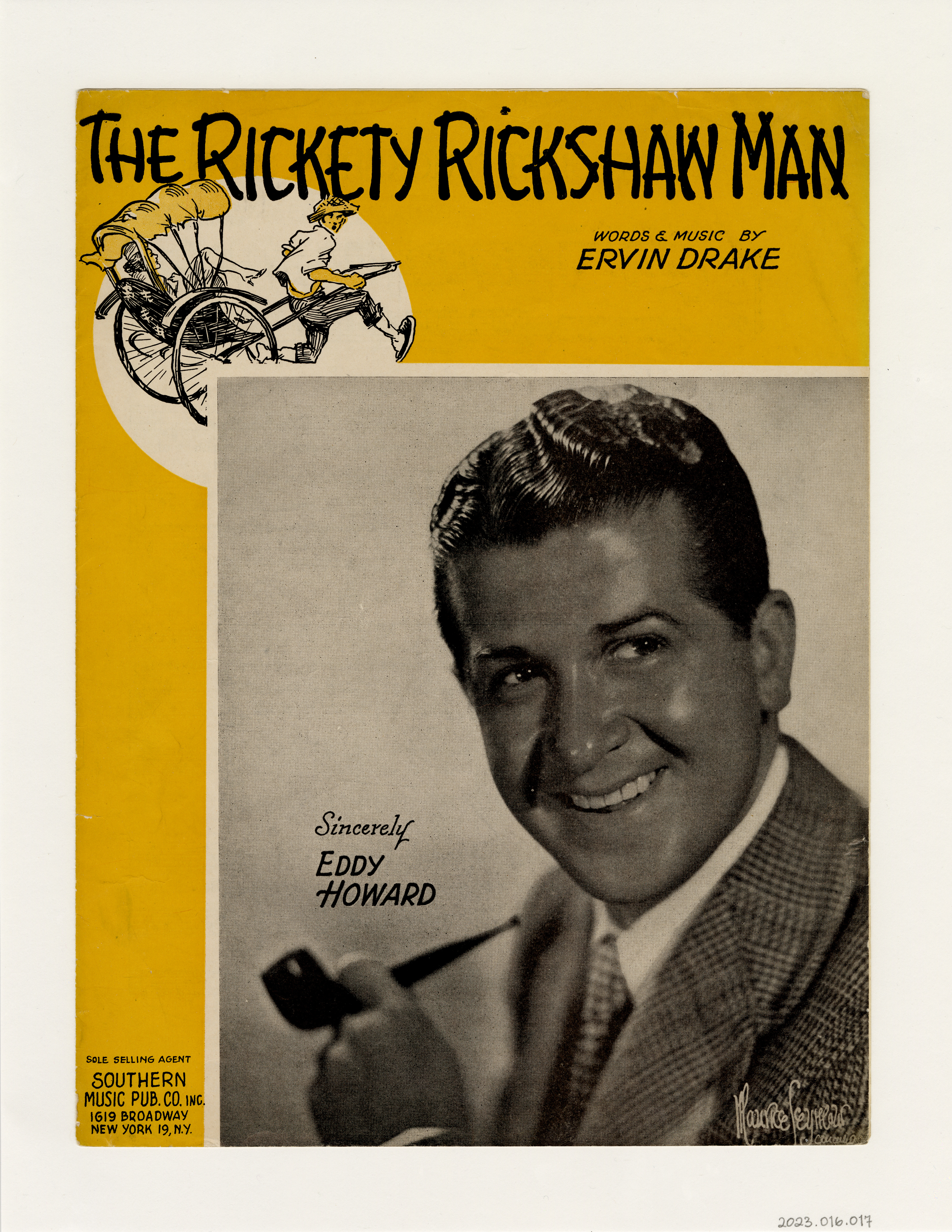
Courtesy of Sam Kohl, Museum of Chinese in America (MOCA) Collection.
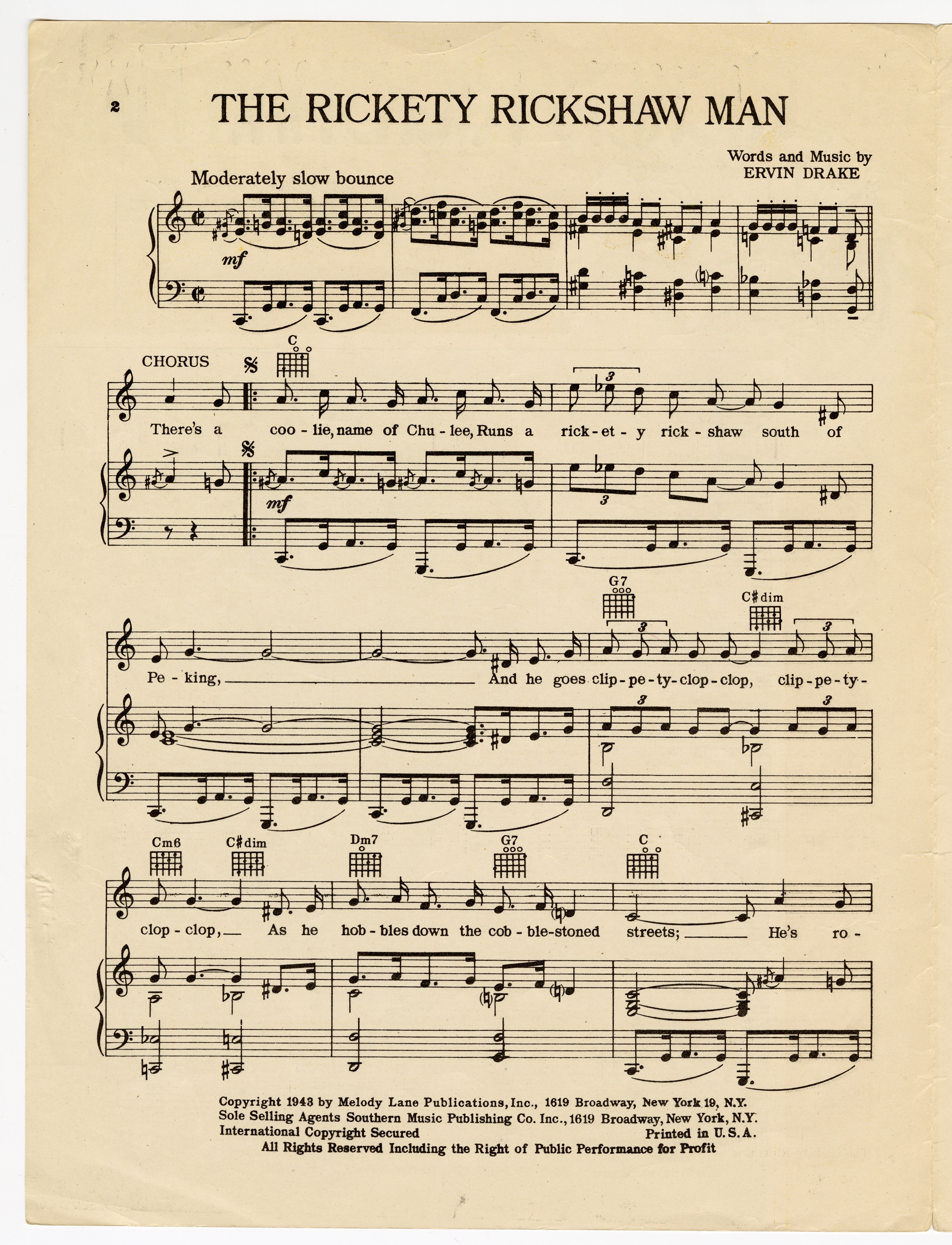
Courtesy of Sam Kohl, Museum of Chinese in America (MOCA) Collection.
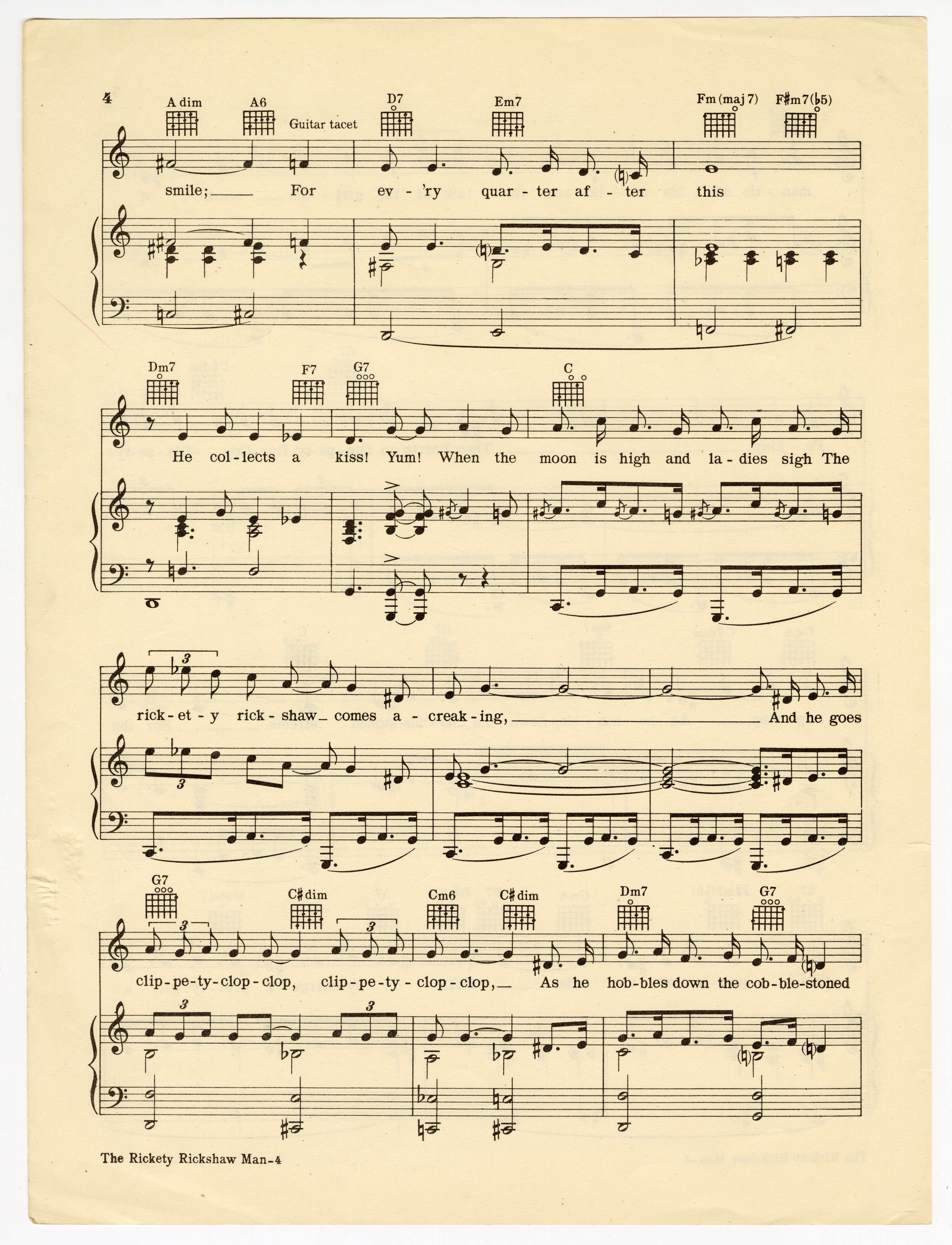
Courtesy of Sam Kohl, Museum of Chinese in America (MOCA) Collection.
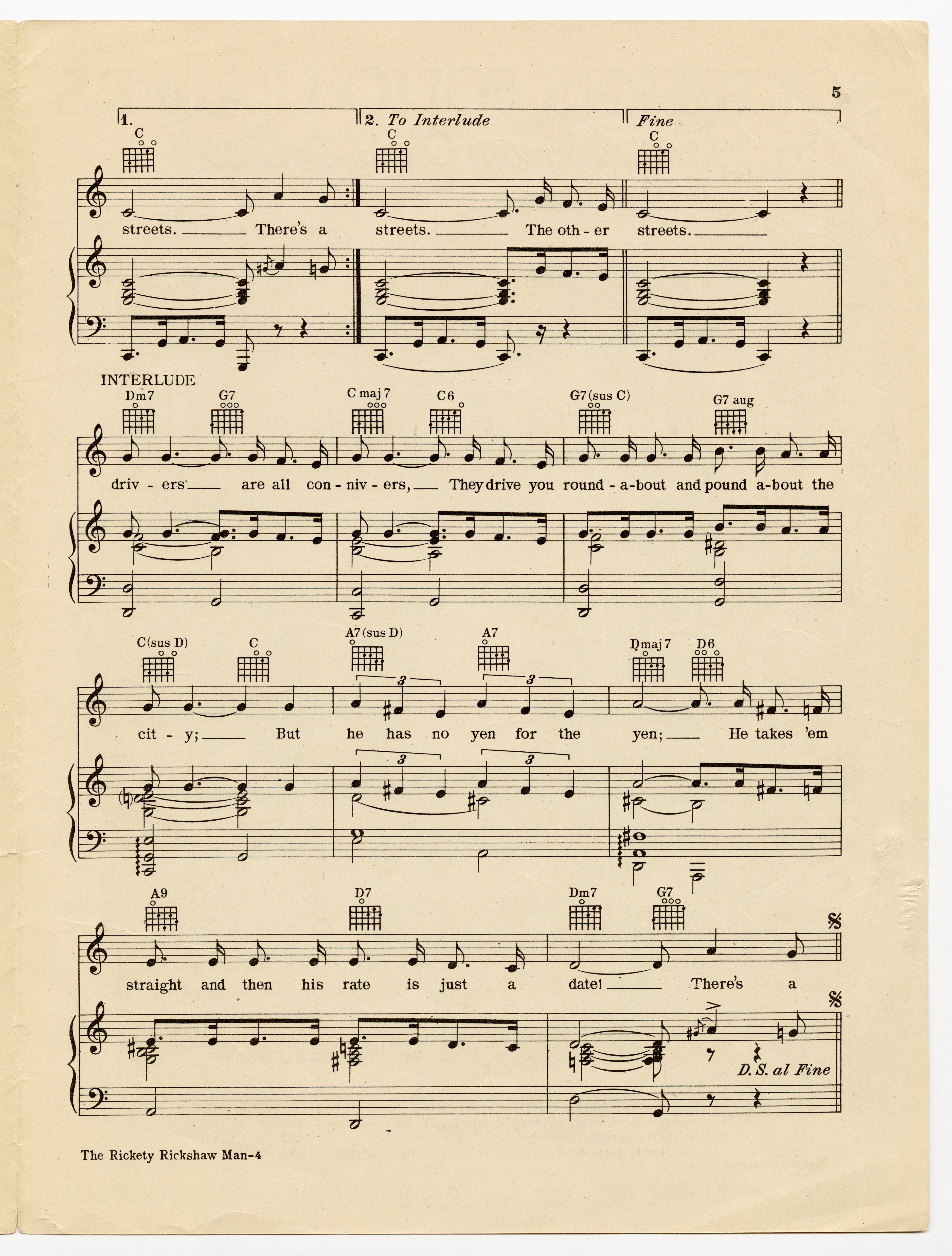
Courtesy of Sam Kohl, Museum of Chinese in America (MOCA) Collection.
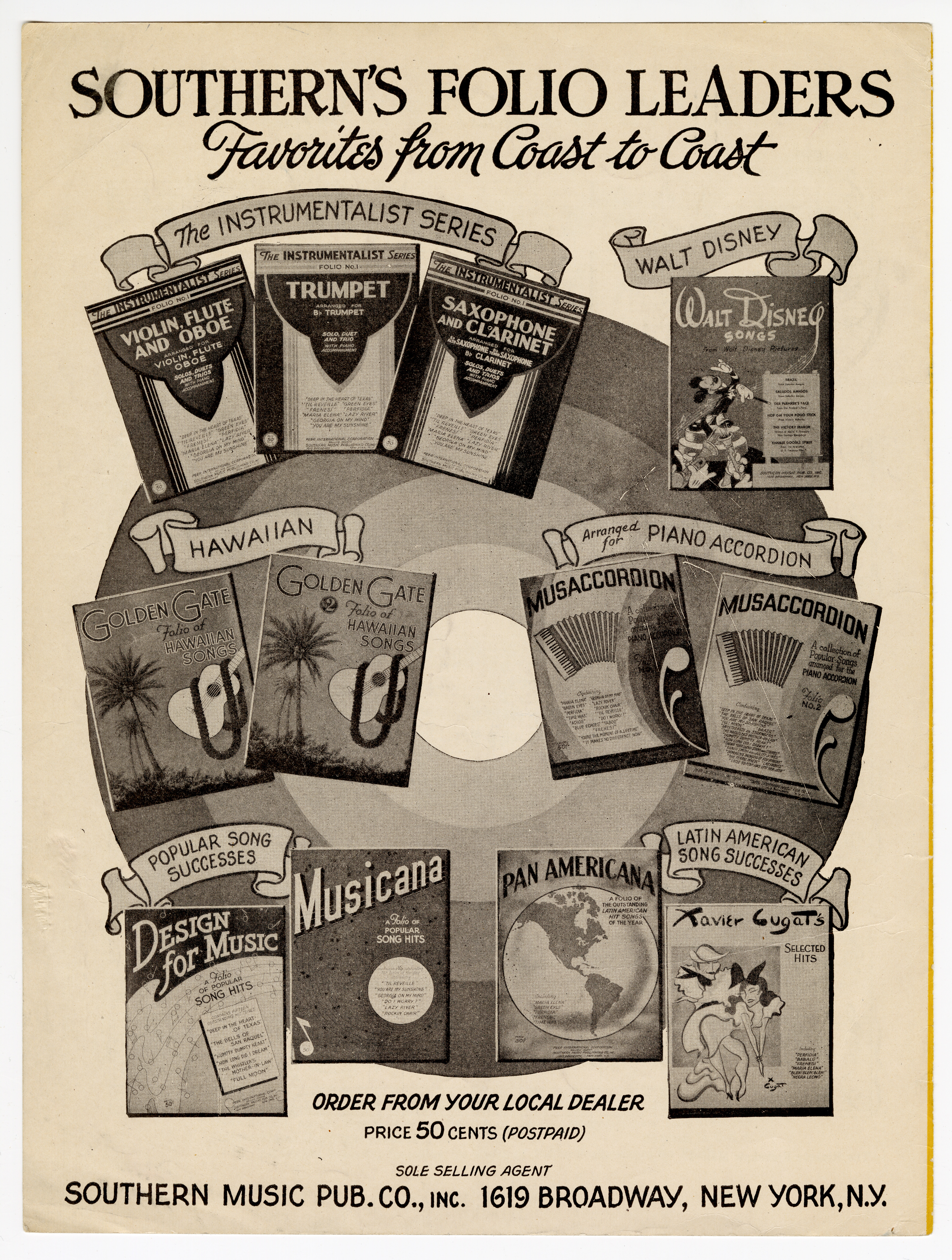
Courtesy of Sam Kohl, Museum of Chinese in America (MOCA) Collection.
“In Blinky Winky Chinky Chinatown”, with a cover that features what seems to be a Japanese Geisha.
Here is a 1915 audio recording: In Blinky Winky Chinky Chinatown
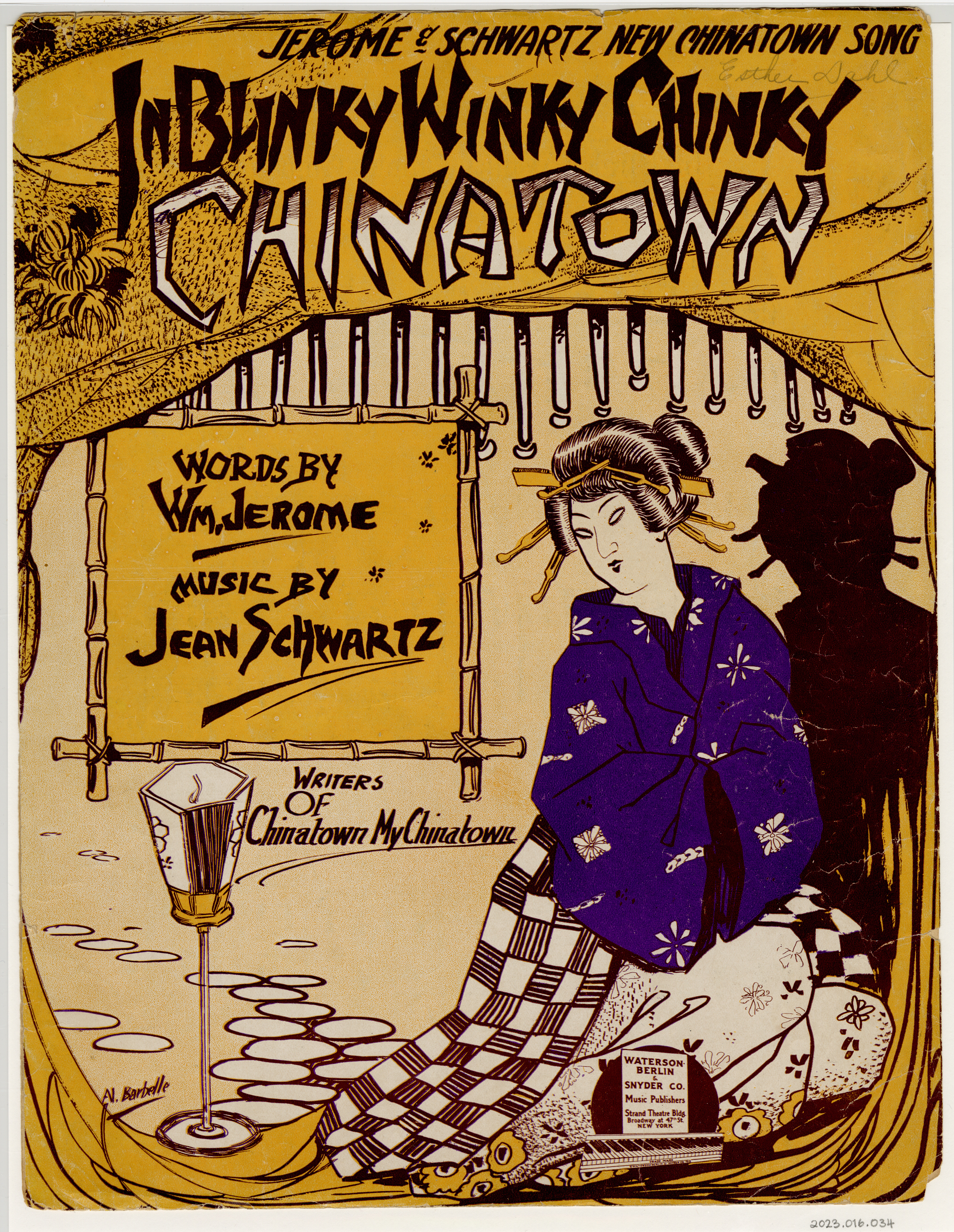
Courtesy of Sam Kohl, Museum of Chinese in America (MOCA) Collection.
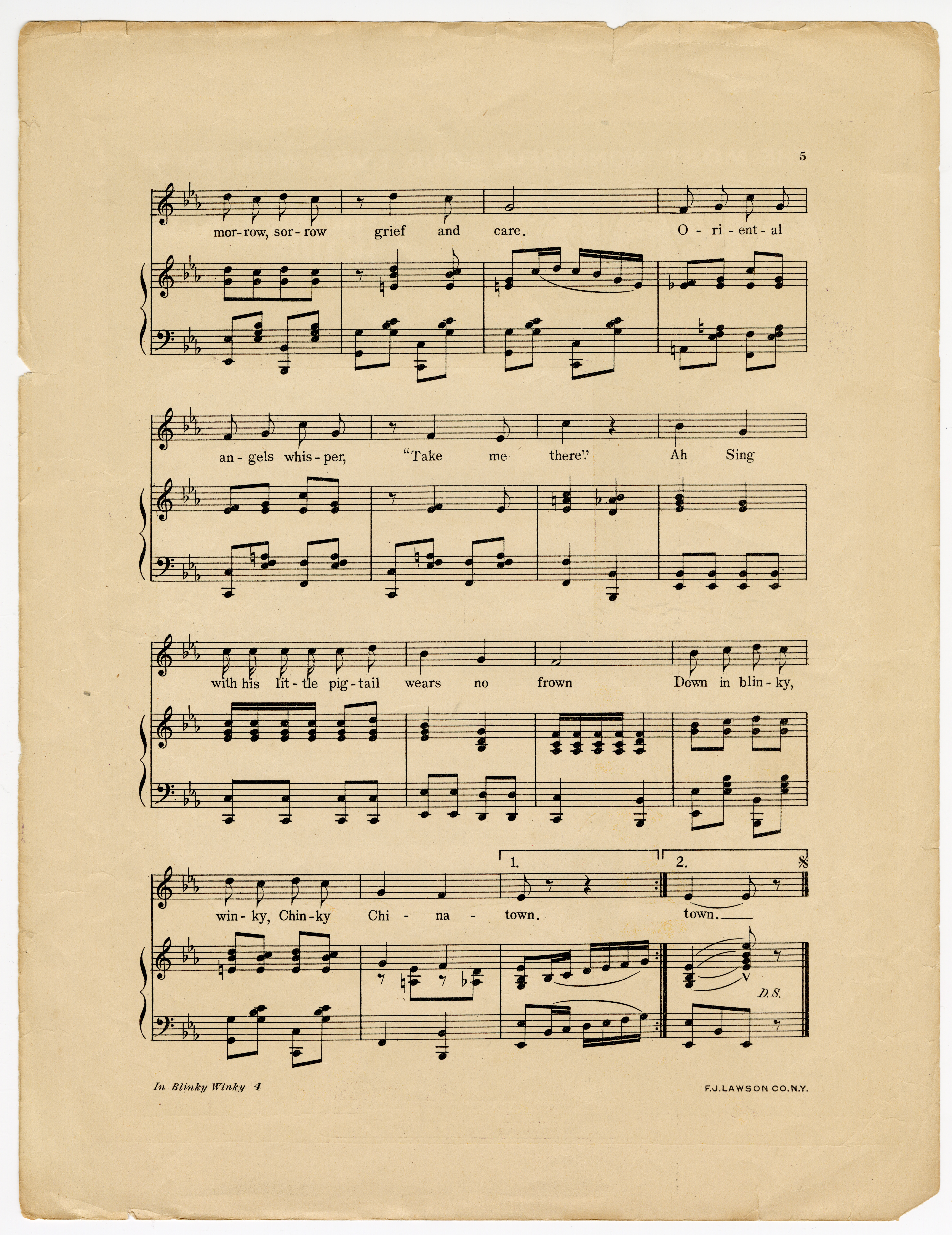
Courtesy of Sam Kohl, Museum of Chinese in America (MOCA) Collection.
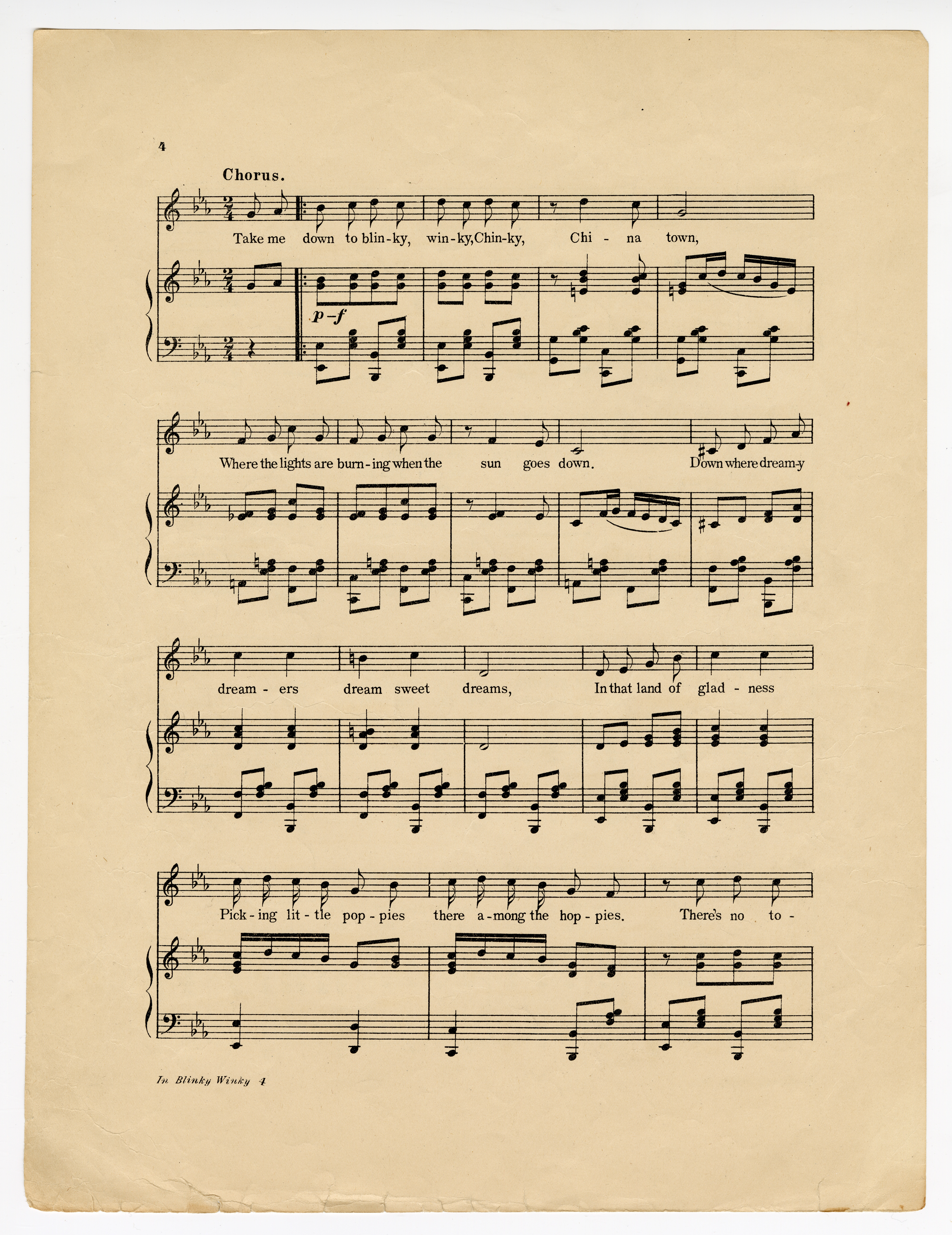
Courtesy of Sam Kohl, Museum of Chinese in America (MOCA) Collection.
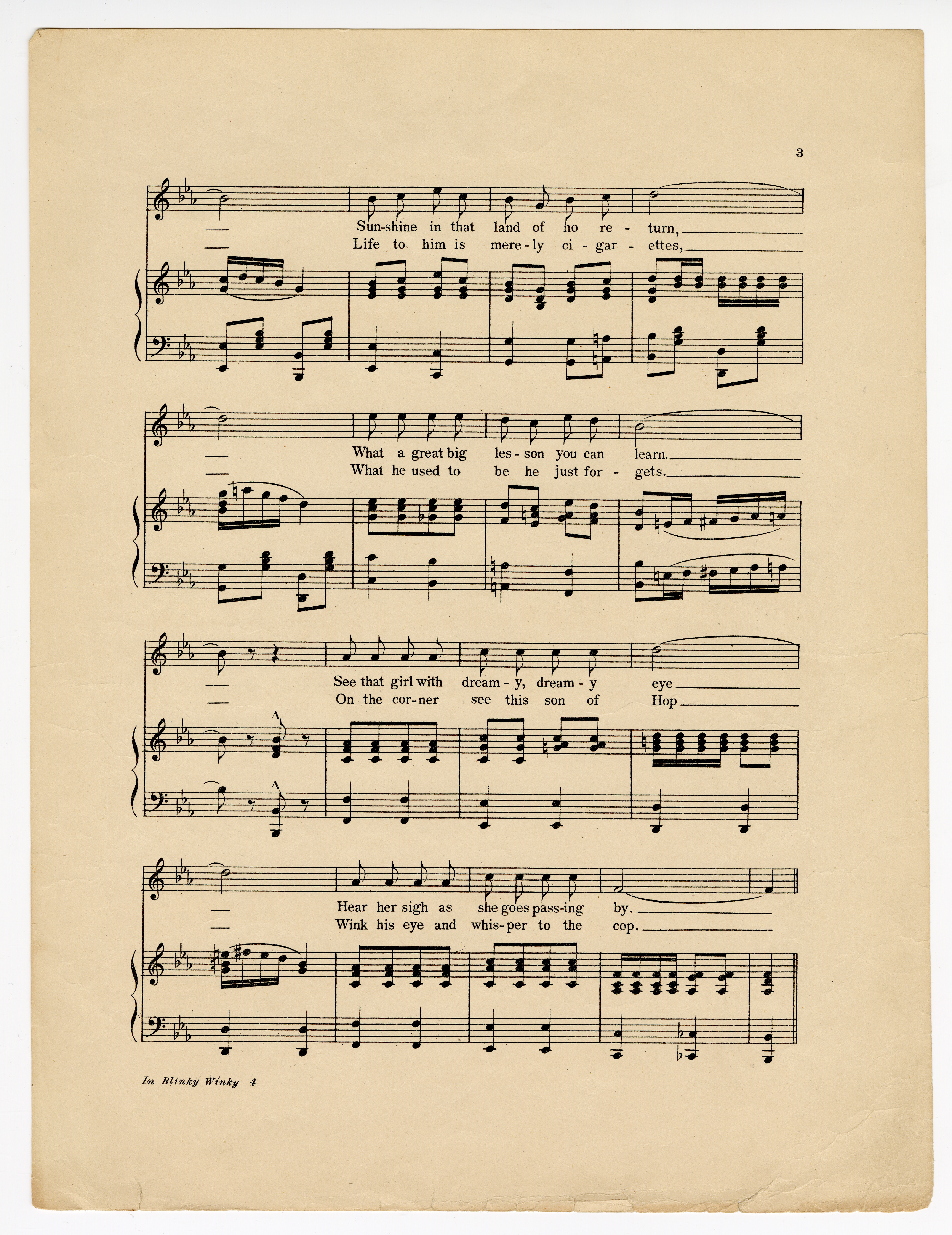
Courtesy of Sam Kohl, Museum of Chinese in America (MOCA) Collection.
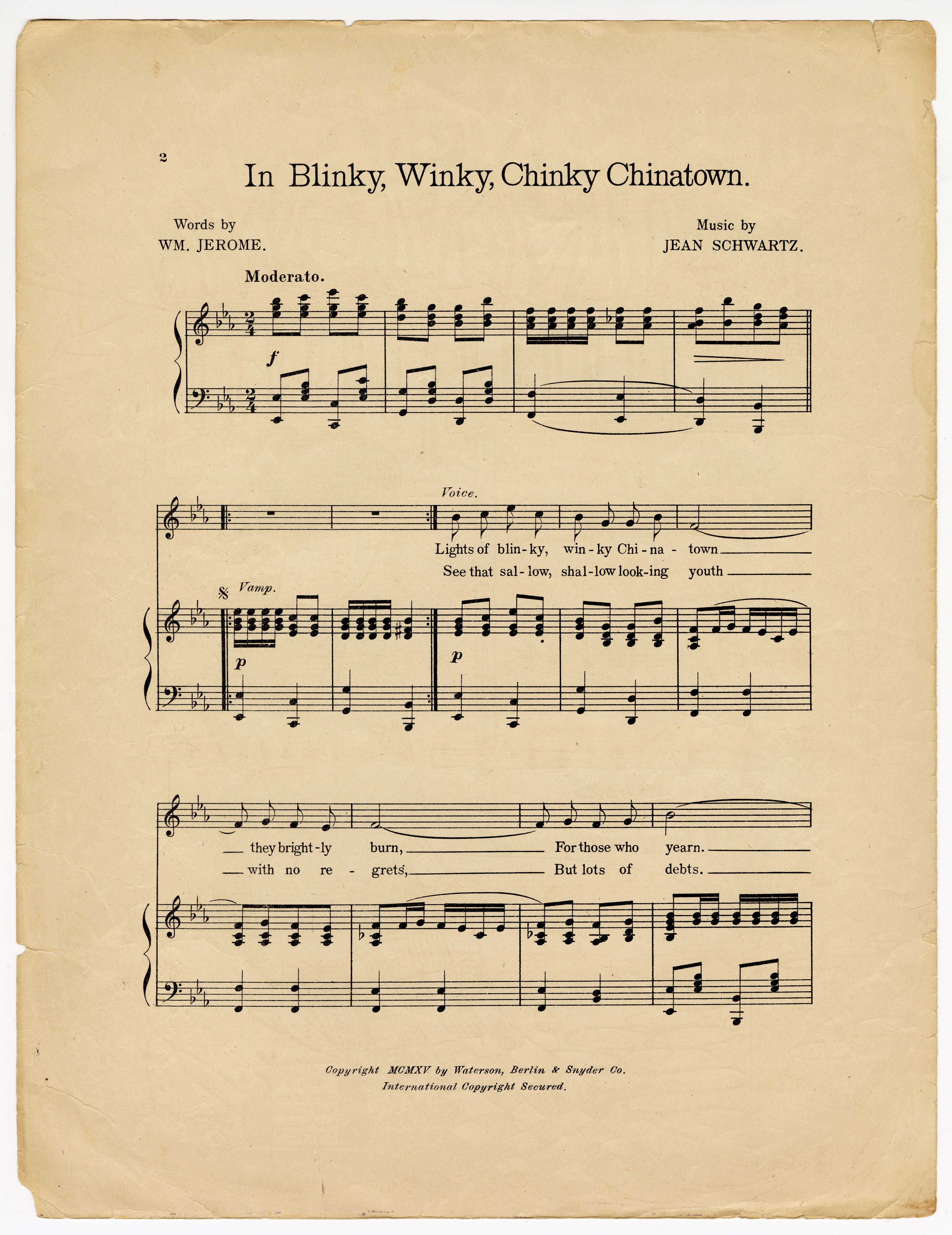
Courtesy of Sam Kohl, Museum of Chinese in America (MOCA) Collection.
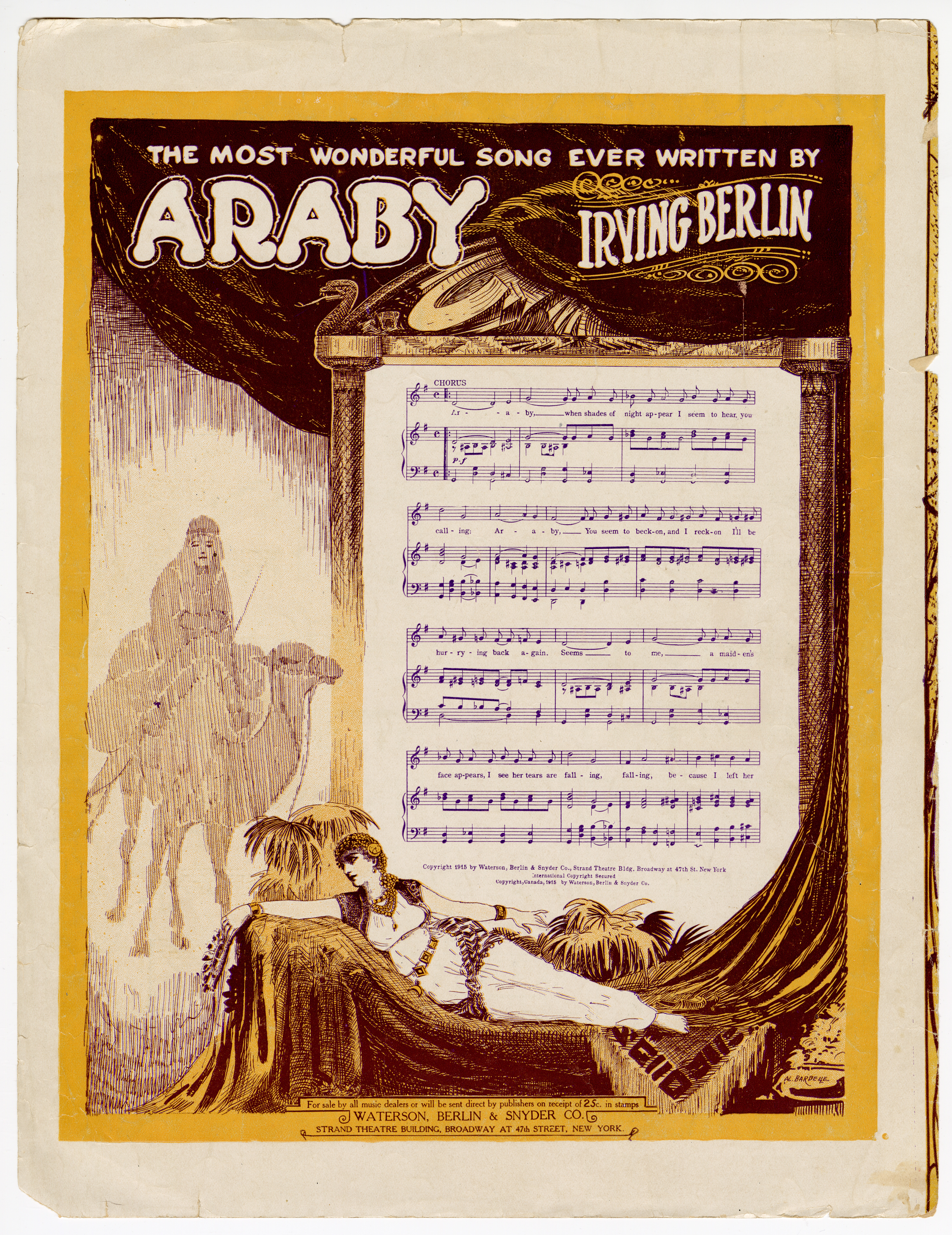
Courtesy of Sam Kohl, Museum of Chinese in America (MOCA) Collection.
“China we owe a lot to you” is seemingly a song showing appreciation for the Chinese, albeit with some insensitive lyrics.

Courtesy of Sam Kohl, Museum of Chinese in America (MOCA) Collection.
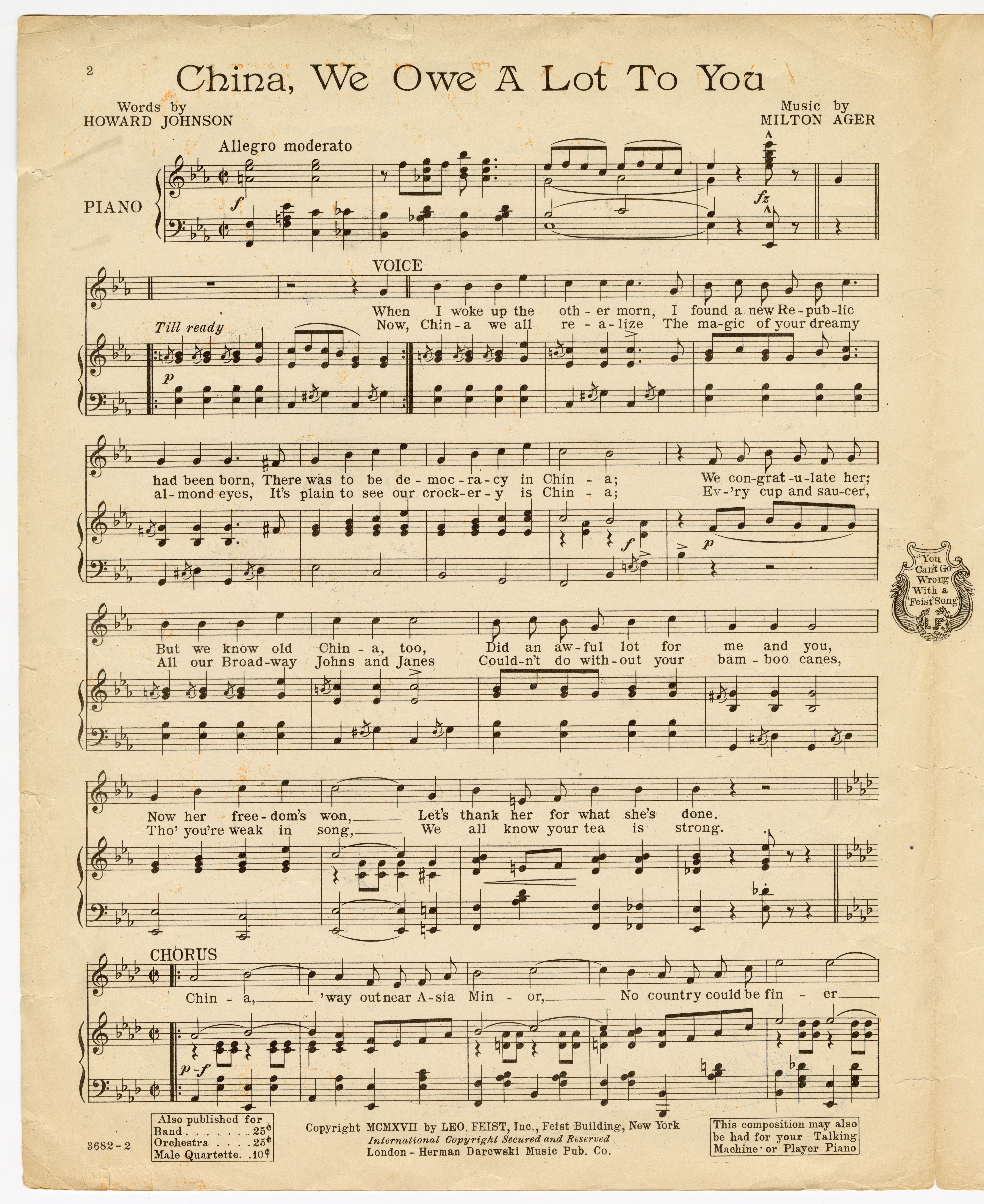
Courtesy of Sam Kohl, Museum of Chinese in America (MOCA) Collection.
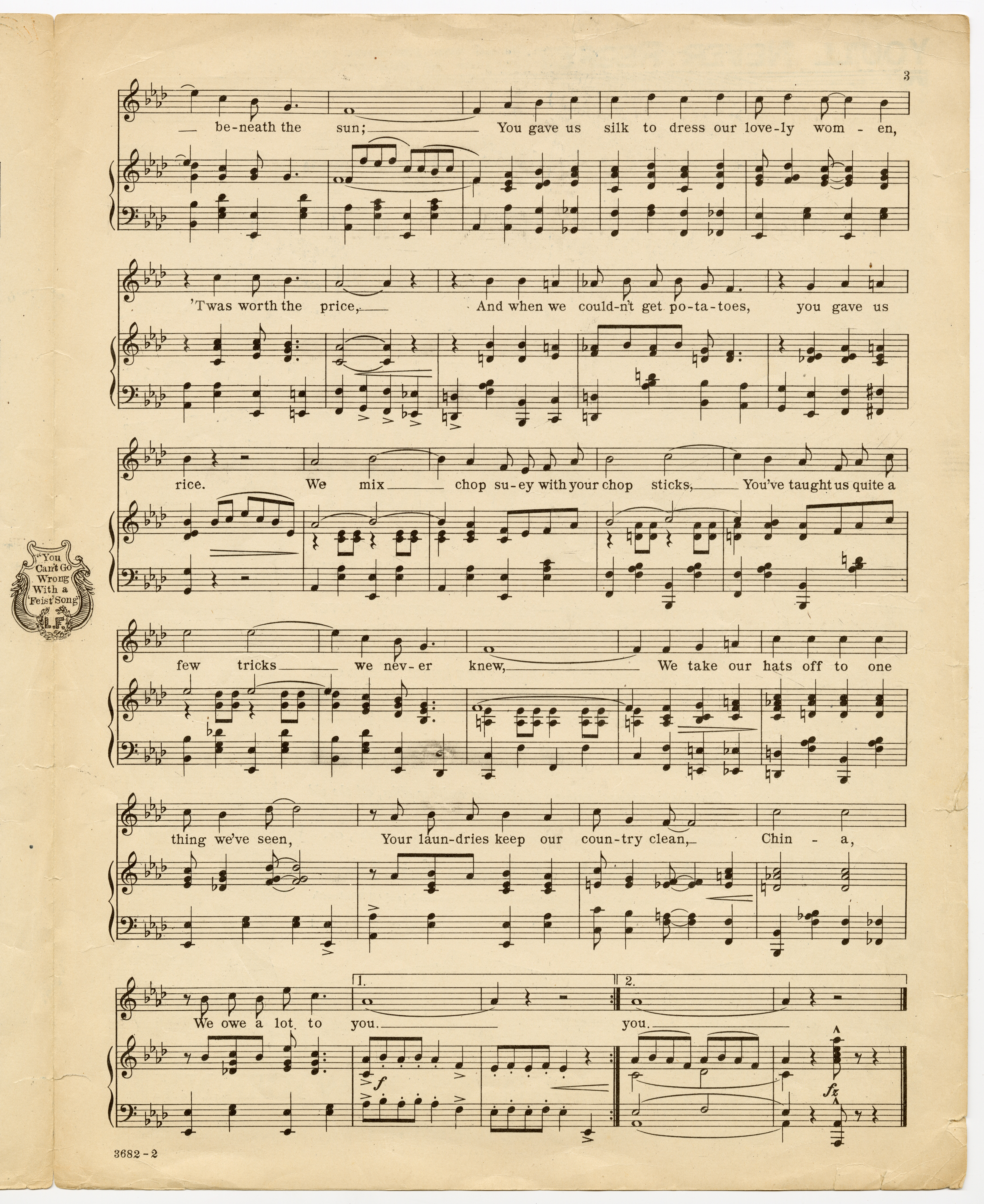
Courtesy of Sam Kohl, Museum of Chinese in America (MOCA) Collection.
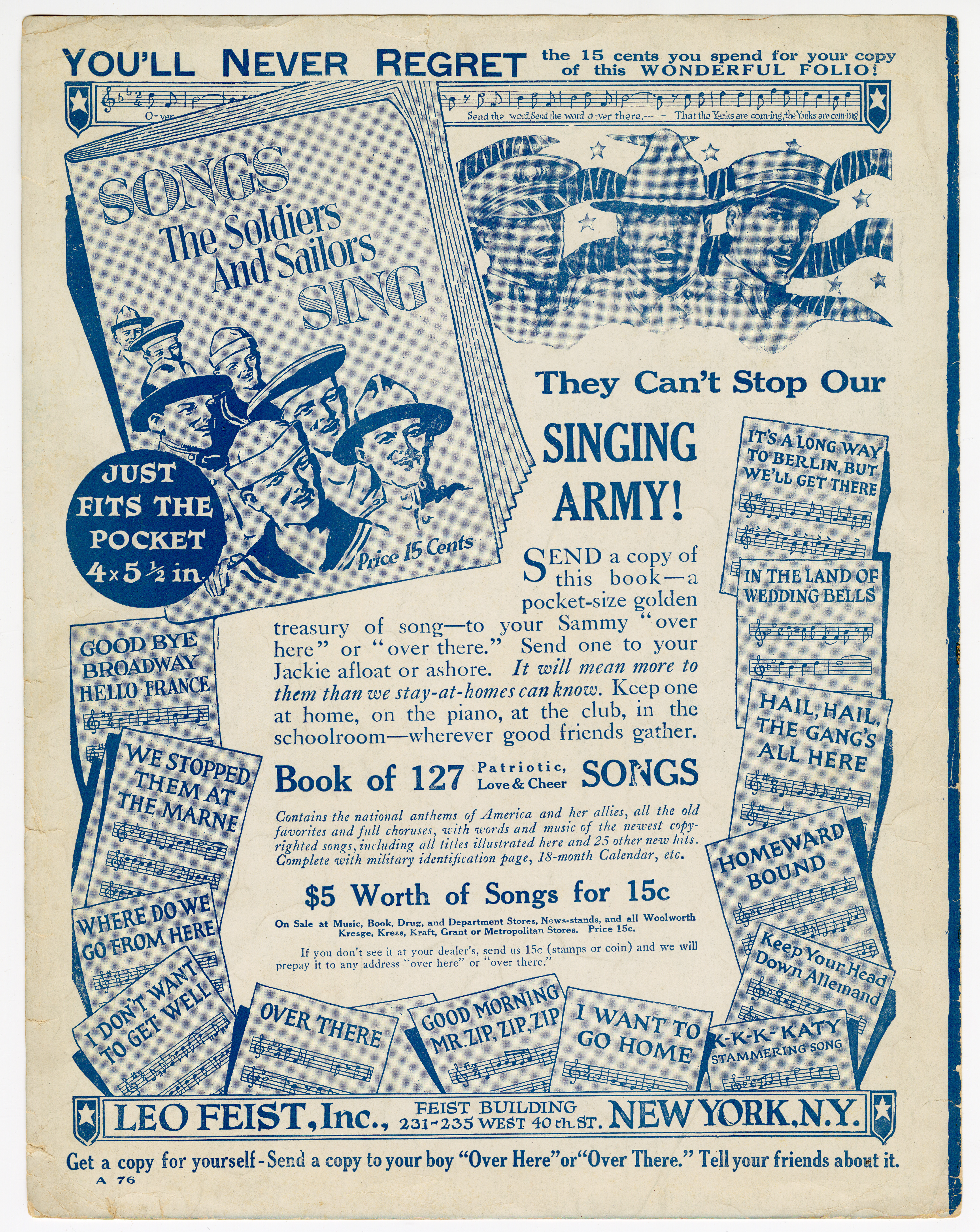
Courtesy of Sam Kohl, Museum of Chinese in America (MOCA) Collection.







